The 1980s. An era synonymous with bold experimentation, groundbreaking genres, and unforgettable anthems. It was a decade where music pushed boundaries, embraced new technologies, and produced a soundtrack that continues to resonate today. Forget shoulder pads and leg warmers for a moment; the real enduring legacy of the Eighties lies in its music. From the rise of hip-hop to the synth-pop explosion, from the last gasps of stadium rock to the emergence of alternative scenes, the 80s were a melting pot of sounds and styles.
This is your ultimate guide to the best songs of the 1980s, a curated mixtape of era-defining tracks. We’re diving deep beyond the surface hits to unearth album gems alongside the chart-dominating singles. Get ready for a journey through pop masterpieces, rock anthems, rap revolutions, soul serenades, new wave wonders, disco throwbacks, country crossovers, punk explosions, dance floor fillers, and those smooth tunes that just ooze cool. Prepare for legendary artists and fleeting one-hit wonders, for voices that ignited a generation and sounds that came from nowhere to conquer the world. Yes, there’s a touch of cheese, a hint of sleaze, and a whole lot of unforgettable music.
Think Axl and Slash, Salt-N-Pepa, Echo & The Bunnymen, Frankie Goes To Hollywood, Public Enemy, and Madonna – the 80s had it all. From Chicago house to Detroit techno, Miami freestyle to D.C. go-go, ska to goth, reggae to acid house – the decade’s musical map was incredibly diverse. But to keep this focused, we’re sticking to just one song per artist, otherwise, this list would be dominated by Prince alone!
Some of these 80s songs are ingrained in global culture, the soundtrack to weddings, parties, and karaoke nights. Others are more niche, perhaps even triggering a run for the hills for some. You’ll find songs you remember vividly and some you might have tried to bury deep in your memory. But each one is a standout track, a piece of the vibrant and complex puzzle that is 80s pop music.
So, crank up your digital boombox, hit play on this ultimate 80s mixtape, and let’s get this party started. It’s time to push it – push it real good.
Biz Markie, ‘Just a Friend’
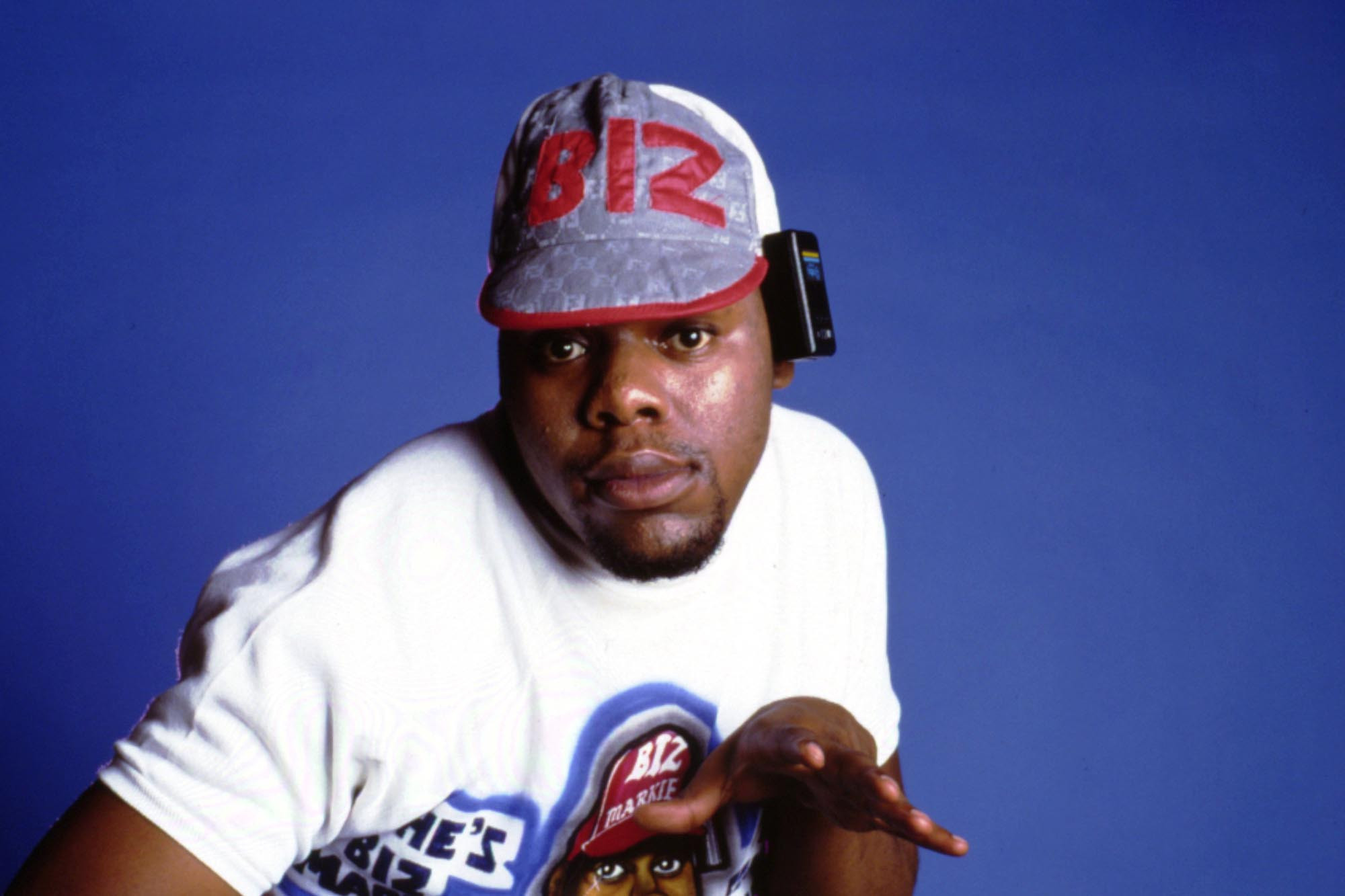 Biz Markie portrait in New York City, 1988, showcasing his charismatic rapper persona.
Biz Markie portrait in New York City, 1988, showcasing his charismatic rapper persona.
Remembering the iconic Biz Markie, a true legend of the 80s hip-hop scene and beyond. The Diabolical Biz, the Human Beatbox – a comedic genius within old-school hip-hop. “Just a Friend” remains an evergreen classic, an anthem for sing-alongs, especially when that chorus hits: “Oh, baby yooou! You got what I neeeed!” Interestingly, Biz initially conceived it as a serious, heartbroken tale. “But it came out funny,” he admitted. When he played it for Q-Tip and De La Soul, their uproarious laughter confirmed its comedic genius. A perfect song, and the ideal track to kick off this 80s music celebration.
Nena, ’99 Luftballons’
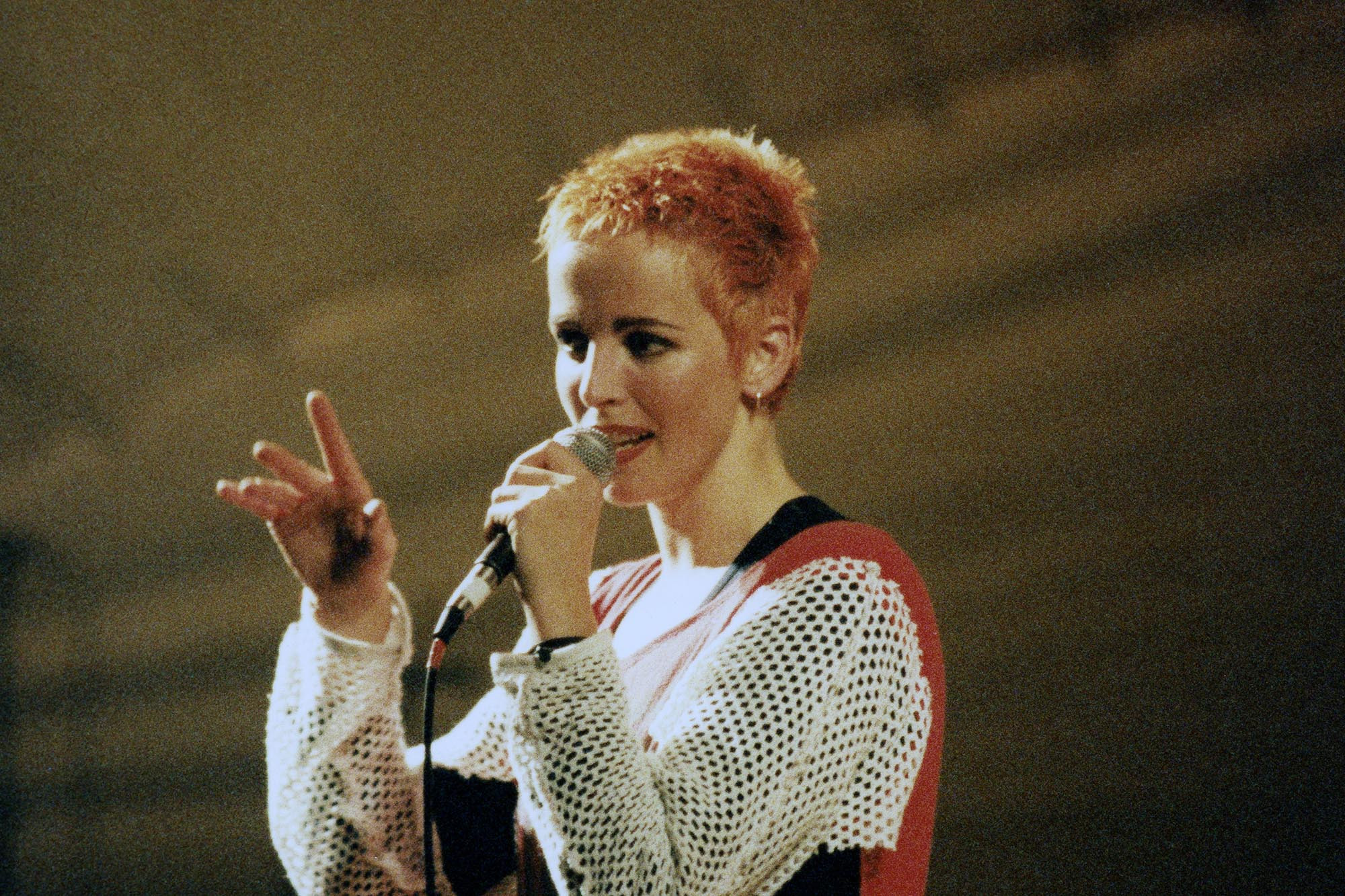 Nena performing live, capturing the energy of her hit song 99 Luftballons in Germany.
Nena performing live, capturing the energy of her hit song 99 Luftballons in Germany.
A perky New Wave tune about nuclear annihilation, sung by a German artist – only in the 80s could this become a global phenomenon. Nena’s “99 Luftballons” is a deceptively upbeat track exploring apocalyptic themes, a common thread in many 80s hits. While the English version, “99 Red Balloons,” is karaoke staple, Nena’s original German rendition carries a unique edge. Her delivery, particularly the snarled “Kriegminister,” adds a layer of cool intensity to this unforgettable 80s track.
My Bloody Valentine, ‘Feed Me With Your Kiss’
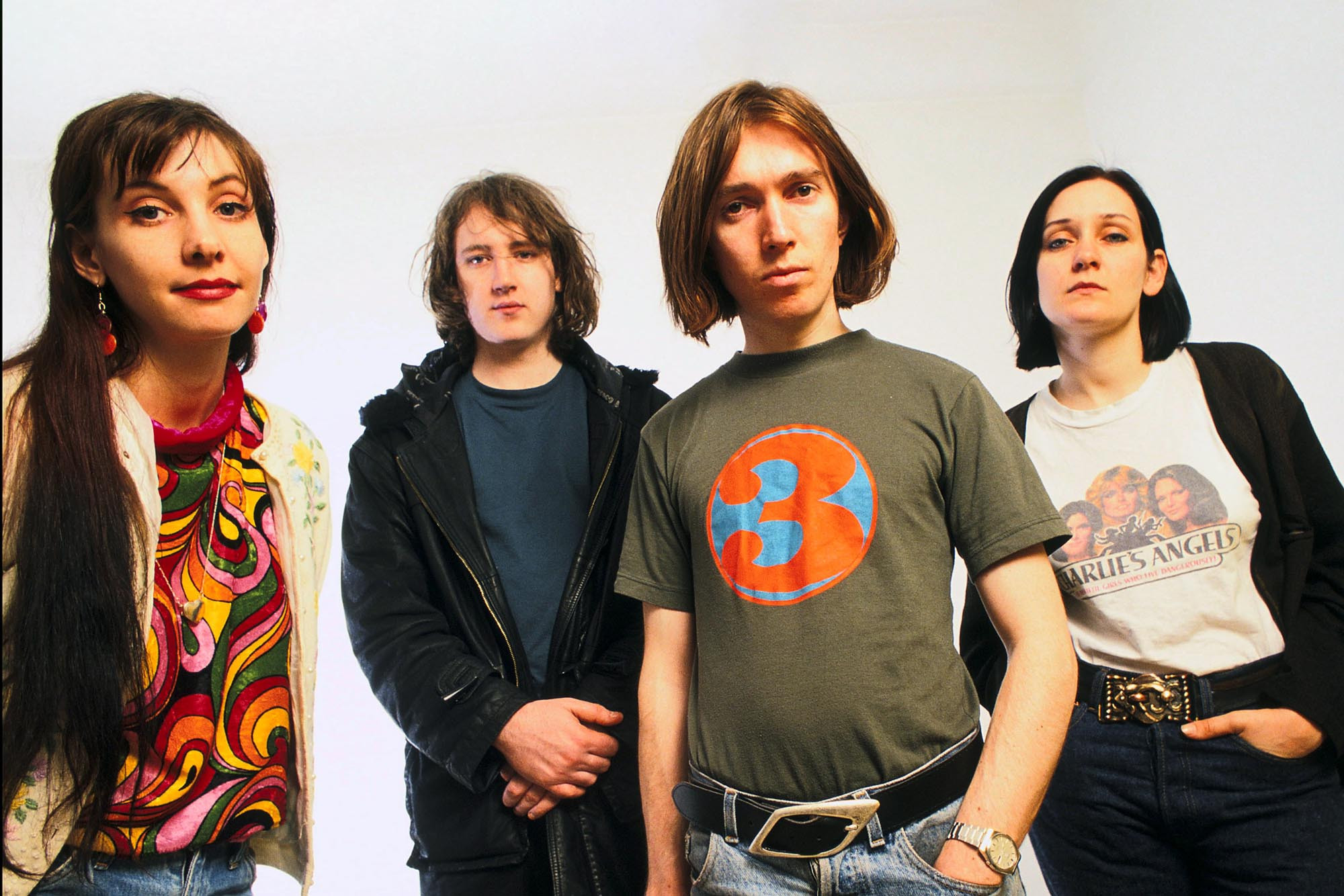 My Bloody Valentine in 1992, pioneers of the shoegaze sound in the alternative 80s music scene.
My Bloody Valentine in 1992, pioneers of the shoegaze sound in the alternative 80s music scene.
Welcome to the genesis of shoegaze. My Bloody Valentine offered an early glimpse into their sonic power with “Feed Me With Your Kiss” from their debut album, Isn’t Anything. Guitar innovator Kevin Shields’ signature tremolo, feedback loops, and sheer noise, combined with Belinda Butcher’s ethereal vocals and powerful, almost clumsy drumming, creates a soundscape of overwhelming intensity. It’s a brain-melting sonic experience that feels akin to euphoria, marking a pivotal moment in 80s alternative music.
Bobby Brown, ‘My Prerogative’
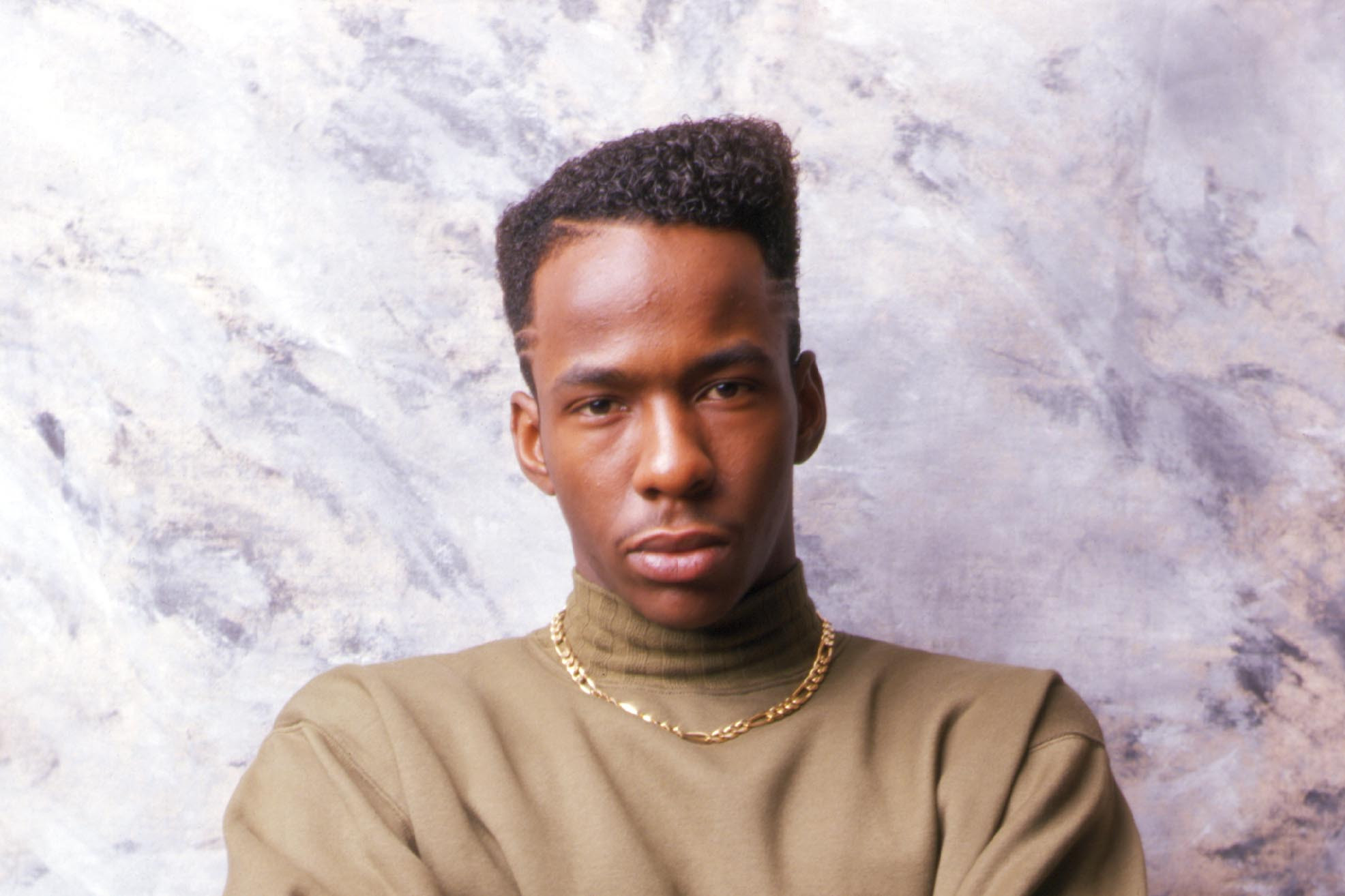 Bobby Brown in 1988 portrait with Gumby haircut, representing the New Jack Swing era of 80s R&B music.
Bobby Brown in 1988 portrait with Gumby haircut, representing the New Jack Swing era of 80s R&B music.
This is the sound of New Jack Swing taking over. Bobby Brown, addressing celebrity gossip head-on, teamed up with young prodigy Teddy Riley to craft a beat that would dominate radio airwaves for years to come. “My Prerogative” resonated with audiences for its relatable themes of fame and personal choice, so much so that Britney Spears later used it as the title for her greatest hits album in 2004, proving its lasting impact. It’s a defining track of late 80s R&B.
The Fall, ‘New Big Prinz’
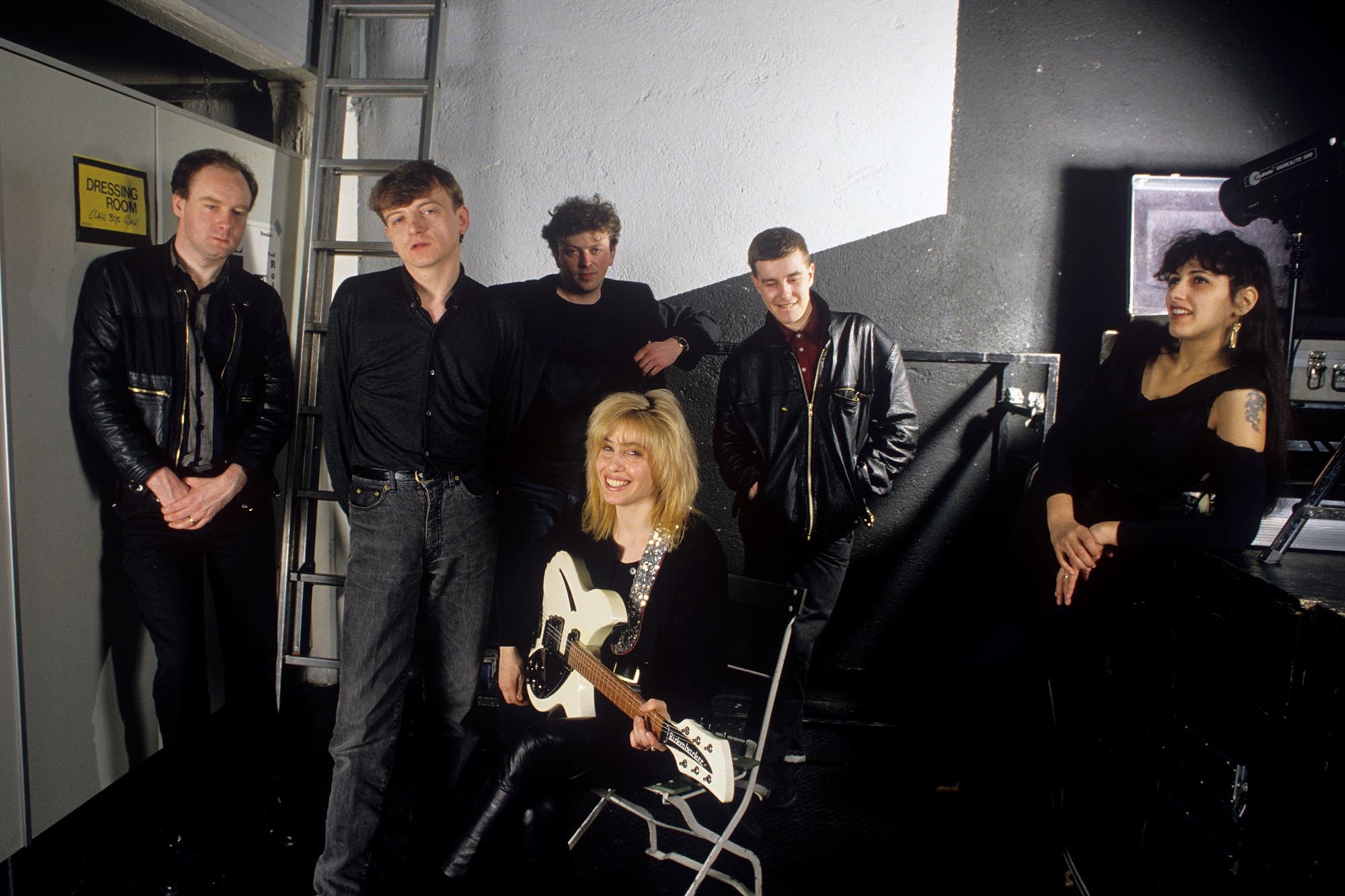 Mark E. Smith of The Fall performing in Munich, 1988, embodying the post-punk spirit of 80s alternative.
Mark E. Smith of The Fall performing in Munich, 1988, embodying the post-punk spirit of 80s alternative.
The Fall, led by the enigmatic Mark E. Smith, were prolific creators of post-punk gems throughout the 1980s. Smith, self-proclaimed “Hip Priest,” was known for his confrontational persona, both towards audiences and band members. “People still cross the road from me; I’ve still got that,” he once stated, highlighting his intentionally intimidating presence. “New Big Prinz” is a stomping track filled with glam-rock guitar riffs and handclaps, with his then-wife Brix Smith’s pop sensibilities adding another layer. Smith’s barking vocals and the song’s raw energy make it a standout in The Fall’s extensive 80s catalog.
The Bangles, ‘Hero Takes a Fall’
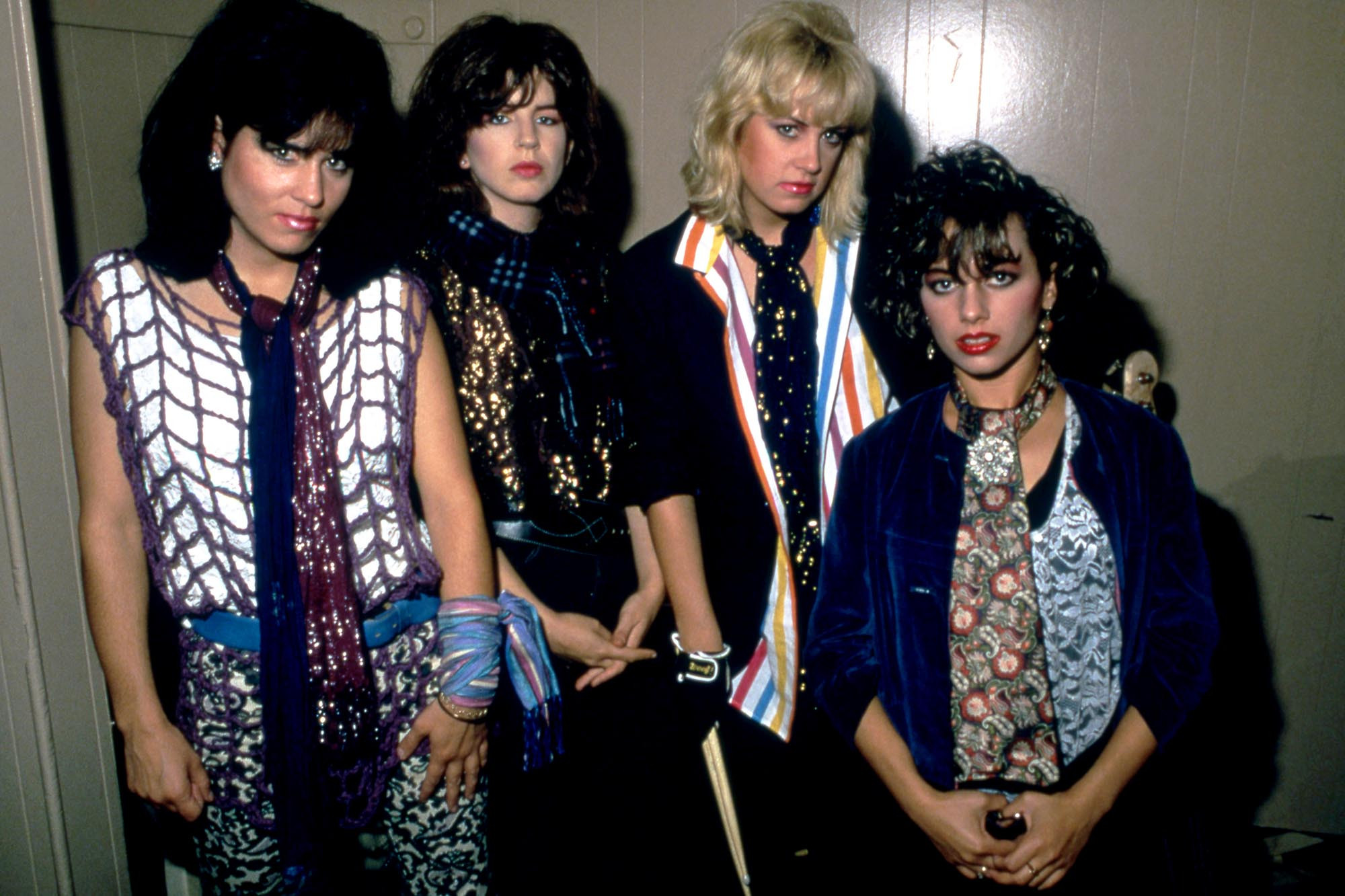 The Bangles in San Francisco, 1984, showcasing their cool and witty style in 80s pop-rock.
The Bangles in San Francisco, 1984, showcasing their cool and witty style in 80s pop-rock.
These Californian mod women brought a sharp, witty edge to pop-rock, blending it with Rubber Soul-esque harmonies and vintage Rickenbacker guitars. “Hero Takes a Fall,” the breakthrough hit from their debut album All Over the Place (1984), showcased their early sound as LA rock and roll hipsters with a vintage fashion sense. This track caught Prince’s attention, inspiring him to write “Manic Monday” for them. Susanna Hoffs and Vicki Peterson’s guitar work, combined with lyrics that challenge male egos, hinted at the band’s enduring appeal and Hoffs’ captivating stage presence.
A-ha, ‘Take On Me’
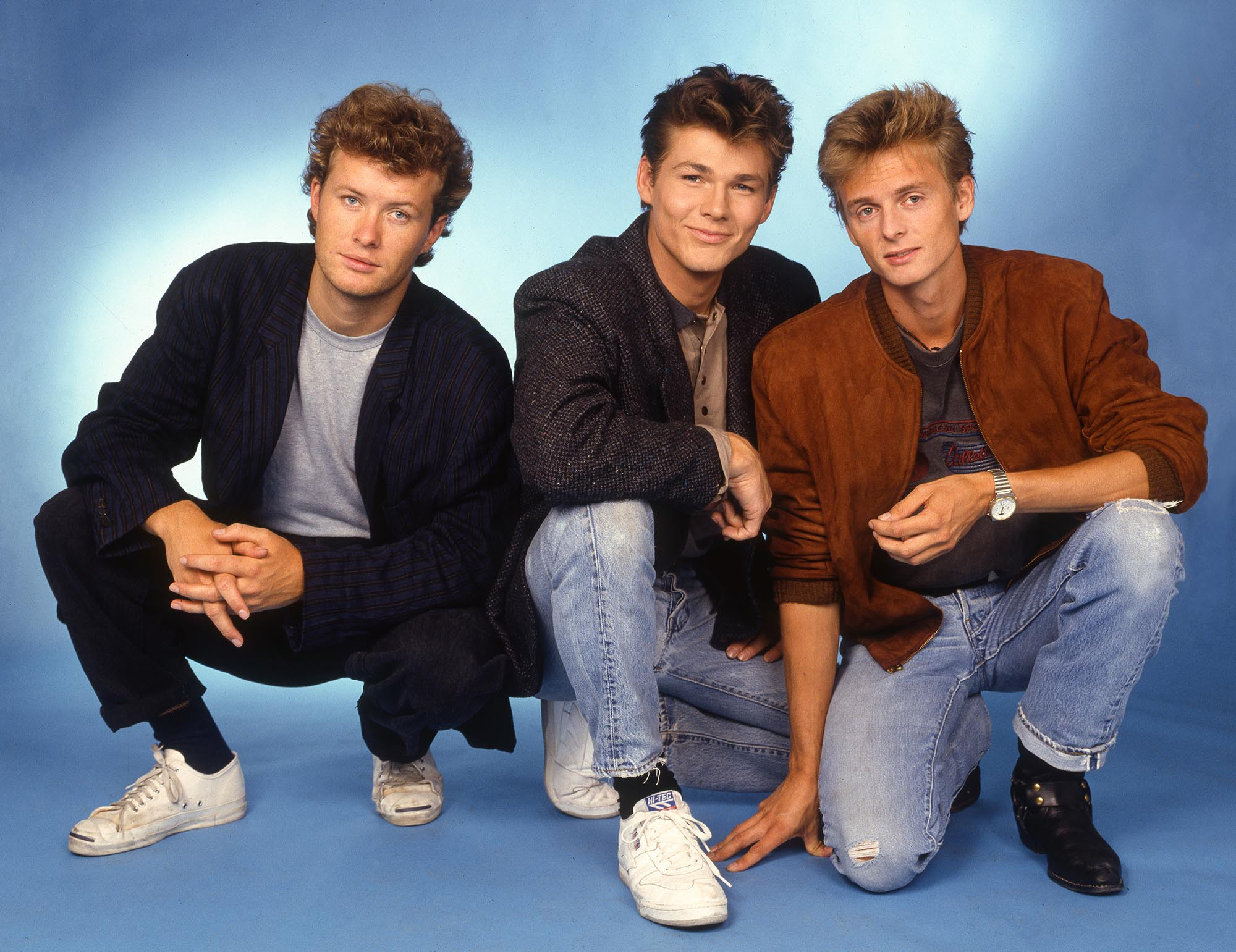 A-ha in 1985, the Norwegian pop trio that conquered the 80s charts with their hit Take On Me.
A-ha in 1985, the Norwegian pop trio that conquered the 80s charts with their hit Take On Me.
Norwegian pop trio A-ha captured America’s heart with their striking looks, groundbreaking video, and most notably, Morten Harket’s incredible falsetto. Harket’s ability to sustain that high note in “Take On Me” for an astonishing 18 seconds is legendary. Fun fact: Harket actually holds the world record for the longest held note in a pop song at 20.2 seconds in his 2000 single “Summer Moved On,” surpassing Bill Withers’ “Lovely Day.” “Take On Me” remains an iconic 80s synth-pop masterpiece.
Debbie Deb, ‘Lookout Weekend’
Miami’s party scene birthed a freestyle hit with Debbie Deb’s “Lookout Weekend.” Produced by Pretty Tony Butler, the track features hard-hitting DMX beats and teenage Debbie Deb’s catchy chant: “Lookout weekend, ‘cause here I come/Because weekends were made for fun.” The song captures the anticipation and energy of the weekend, transforming Debbie Deb into a dance floor goddess amidst “Jumping music! Slick DJs! Fog machines and laser rays!” It’s a perfect encapsulation of the vibrant Miami freestyle sound that defined a part of 80s dance music.
Leonard Cohen, ‘Tower of Song’
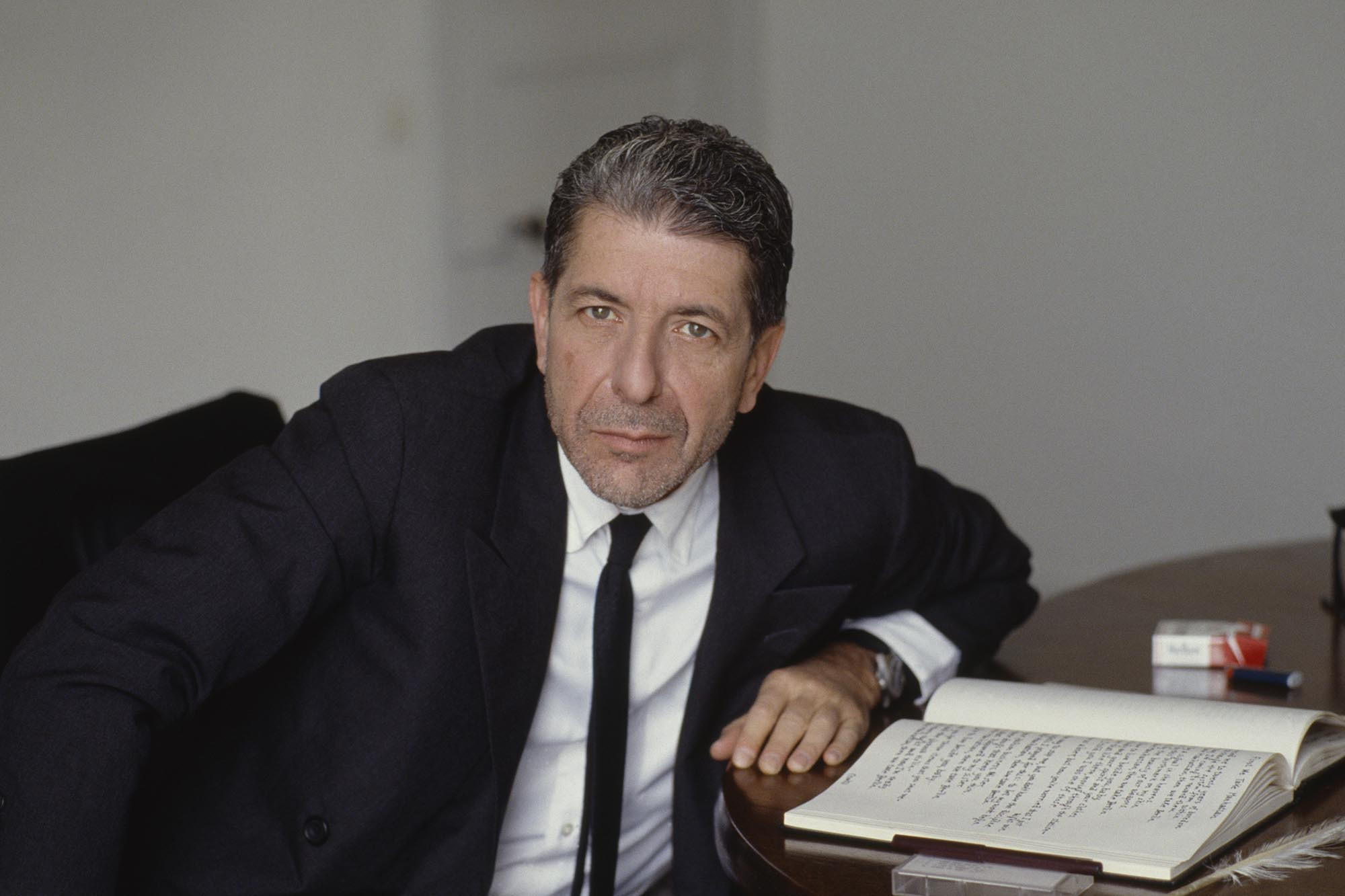 Leonard Cohen during a music clip shoot, the iconic voice of reflection in 80s music.
Leonard Cohen during a music clip shoot, the iconic voice of reflection in 80s music.
Leonard Cohen emerged as a rock elder statesman in the 80s, a 53-year-old Jewish-Canadian poet exploring themes of love, death, and enduring desire. His 1988 album I’m Your Man brought him unprecedented fame after years of struggling for US recognition. “Tower of Song” acts as Cohen’s autobiography, especially with the poignant line, “I was born like this/I had no choice/I was born with the gift of a golden voice.” Interestingly, his masterpiece “Hallelujah” went largely unnoticed until years later, highlighting the sometimes delayed appreciation of true artistry in the 80s.
The Jungle Brothers, ‘Tribe Vibes’
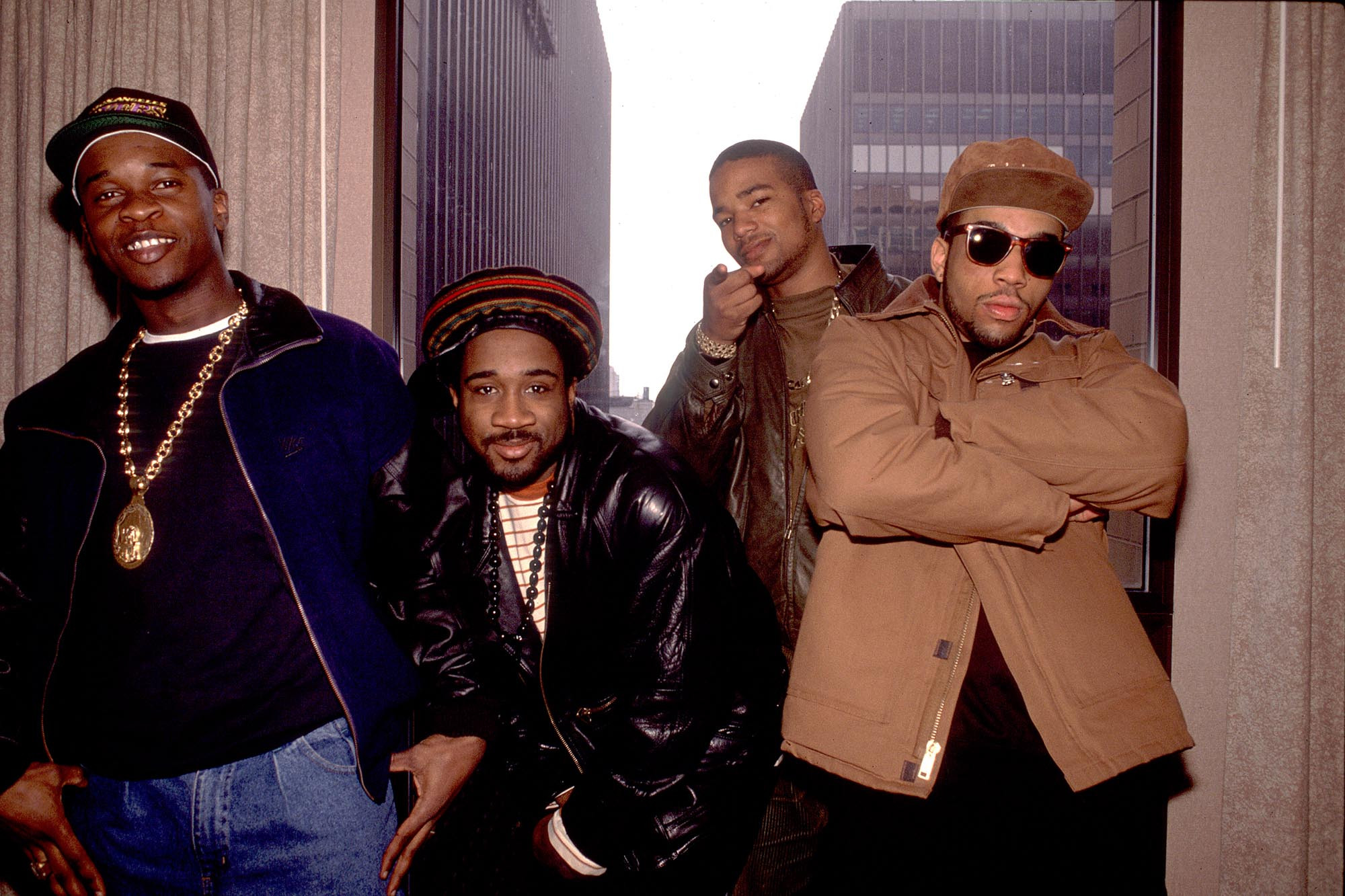 The Jungle Brothers in Chicago, 1990, pioneers of the Native Tongues movement in 80s hip-hop.
The Jungle Brothers in Chicago, 1990, pioneers of the Native Tongues movement in 80s hip-hop.
“Tribe Vibes,” a Native Tongues anthem from the Jungle Brothers’ underrated second album, Done by the Forces of Nature, is a utopian call for unity within the hip-hop community. It envisions Afrocentric consciousness and collaboration, as the JBs declare, “Work by day, ritual by night, the vibe holds the tribe, and it keeps it real tight.” This wasn’t a closed-off movement, however, as evidenced by the Bee Gees guitar sample within the track. Shoutouts to their Long Island peers – “A Tribe Called Quest and De La Soul” – further solidify the collaborative spirit of this trippy, headphone-worthy 80s hip-hop groove.
Falco, ‘Rock Me Amadeus’
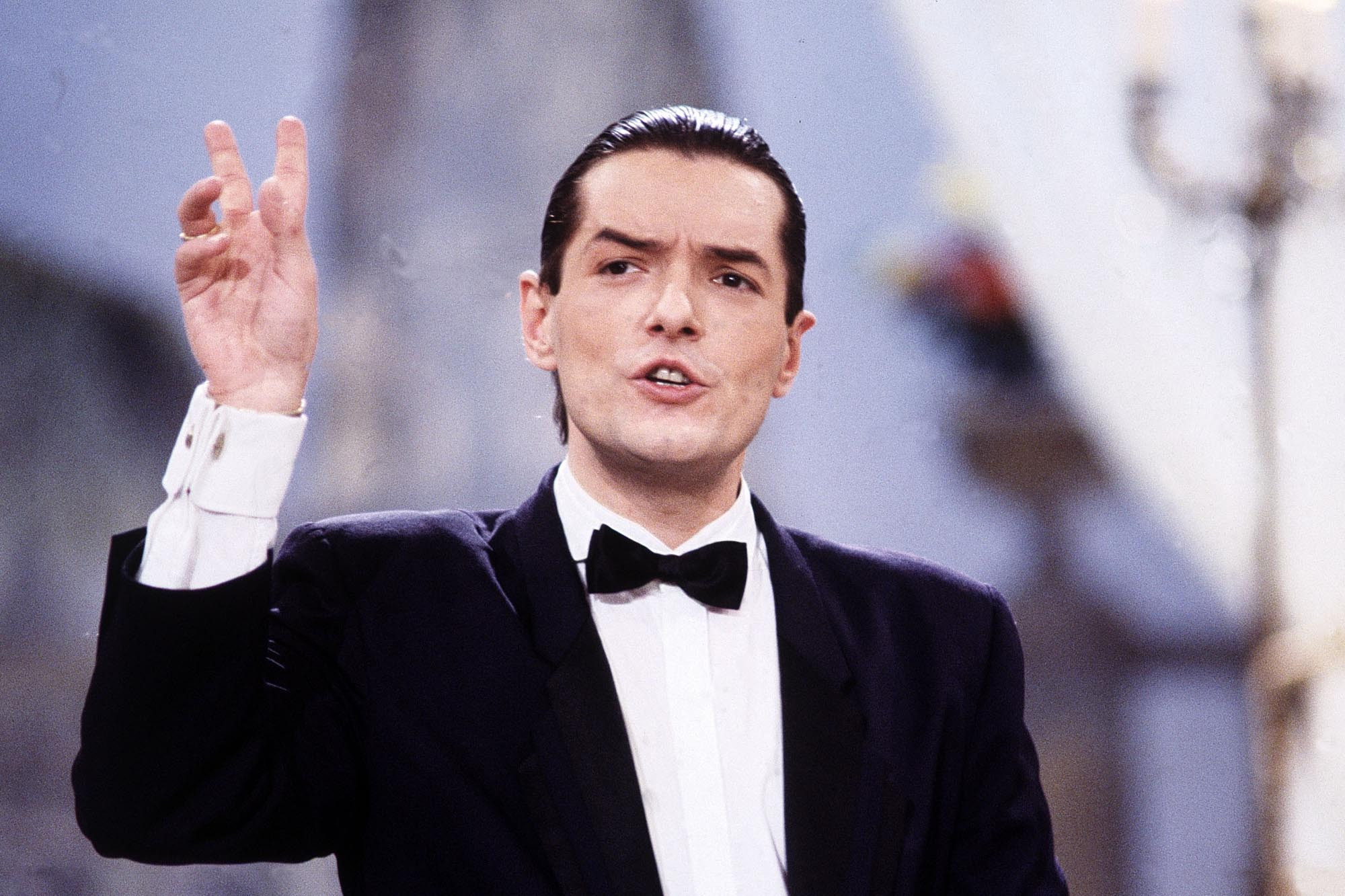 Falco performing Rock Me Amadeus, a uniquely ridiculous yet iconic hit of the 80s.
Falco performing Rock Me Amadeus, a uniquely ridiculous yet iconic hit of the 80s.
One of the most wonderfully absurd Number One hits, perfectly fitting the 80s ethos where ridiculousness could be a pop virtue. Falco, rapping in German about Mozart, attempted to bring powdered wigs back into fashion – unsuccessfully, proving the 80s had some limits. He sprinkled in English words like “superstar” and “punk,” explaining, “If Mozart were alive today, he wouldn’t be making classical music; he’d be an international pop star. And I felt it was time to write a song about him.” American audiences favored the “Salieri Mix,” which included a humorous Mozart timeline. “Rock Me Amadeus” is a testament to the 80s’ embrace of the unconventional in music.
Mecca Normal, ‘I Walk Alone’
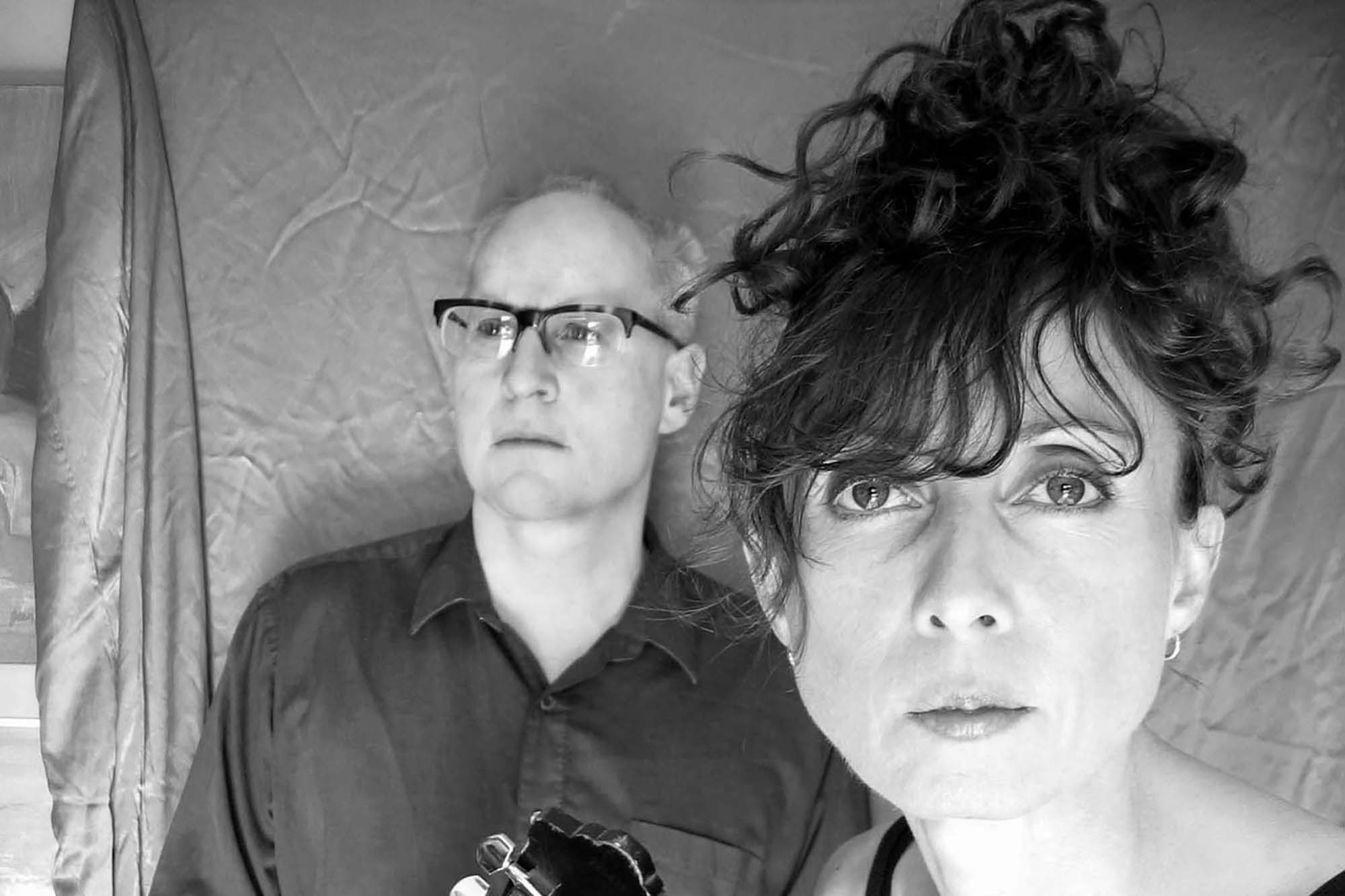 Mecca Normal's Jean Smith, the voice of proto-riot-grrrl in 80s independent music.
Mecca Normal's Jean Smith, the voice of proto-riot-grrrl in 80s independent music.
A proto-riot-grrrl explosion before its time. Mecca Normal’s “I Walk Alone” is stark and powerful, featuring only Jean Smith’s spoken-word punk poetry and David Lester’s guitar. The song portrays a woman navigating urban spaces, constantly feeling like a target. Each repetition of “I walk alone” resonates deeply, challenging listeners to reconsider their perception of the everyday world. It’s a song that aimed to shift perspectives, and for many who heard it, it succeeded, becoming an important piece of 80s indie music.
John Anderson, ‘Wild and Blue’
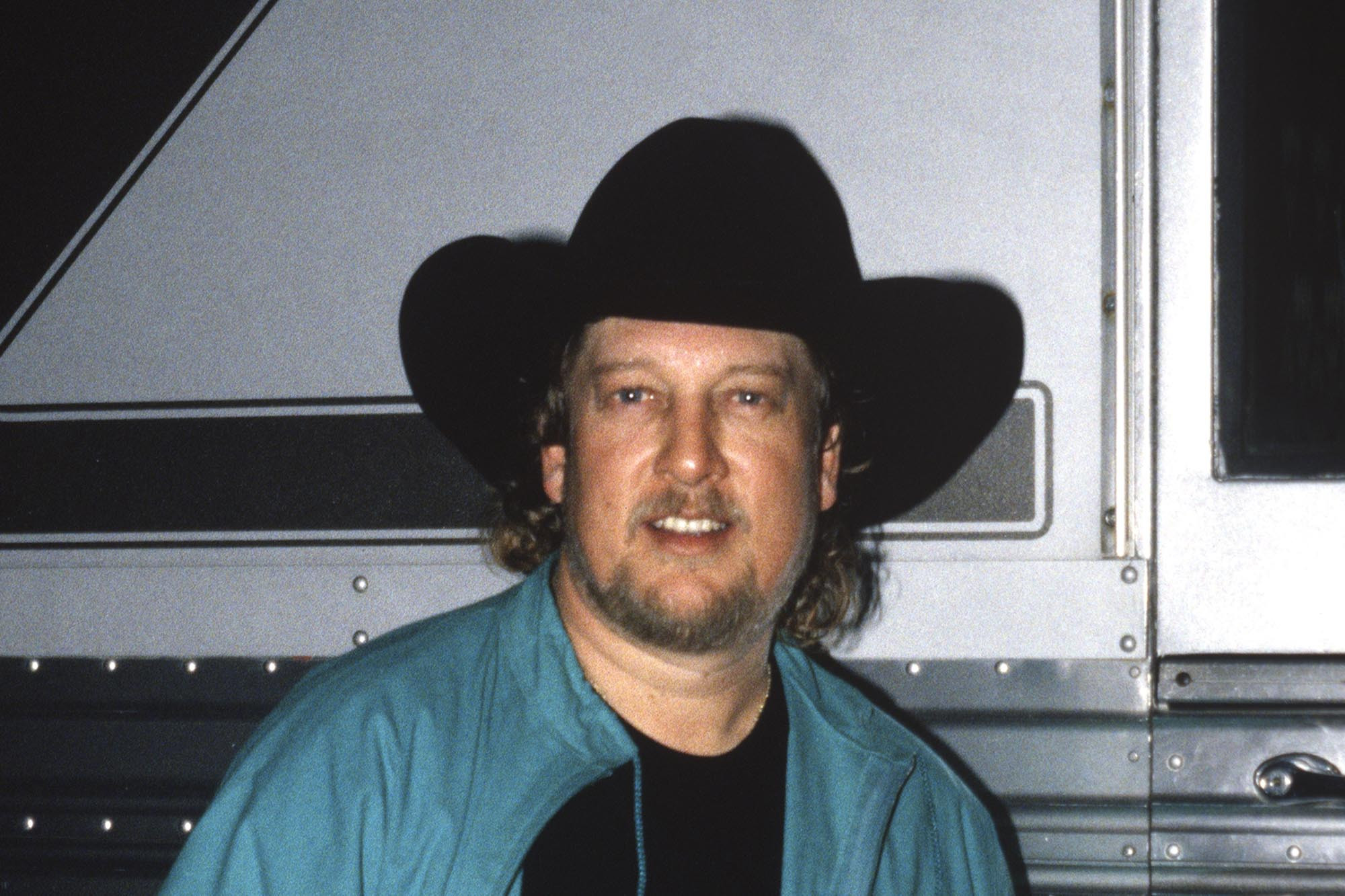 John Anderson in 1993, a key figure in the New Traditionalist movement of 80s country music.
John Anderson in 1993, a key figure in the New Traditionalist movement of 80s country music.
John Anderson was instrumental in launching the New Traditionalist movement that revitalized 80s country radio. His voice, authentically Floridian, shines in “Wild and Blue” – devoid of pop gloss, just pure country with fiddle, banjo, and backing vocals from his sister Donna. A profoundly sad cheating song, lines like “Somebody’s room on the far side of town/With your minds all made up and the shades all pulled down” paint a vivid picture of heartbreak and betrayal within the 80s country landscape.
Trouble Funk, ‘Drop the Bomb’
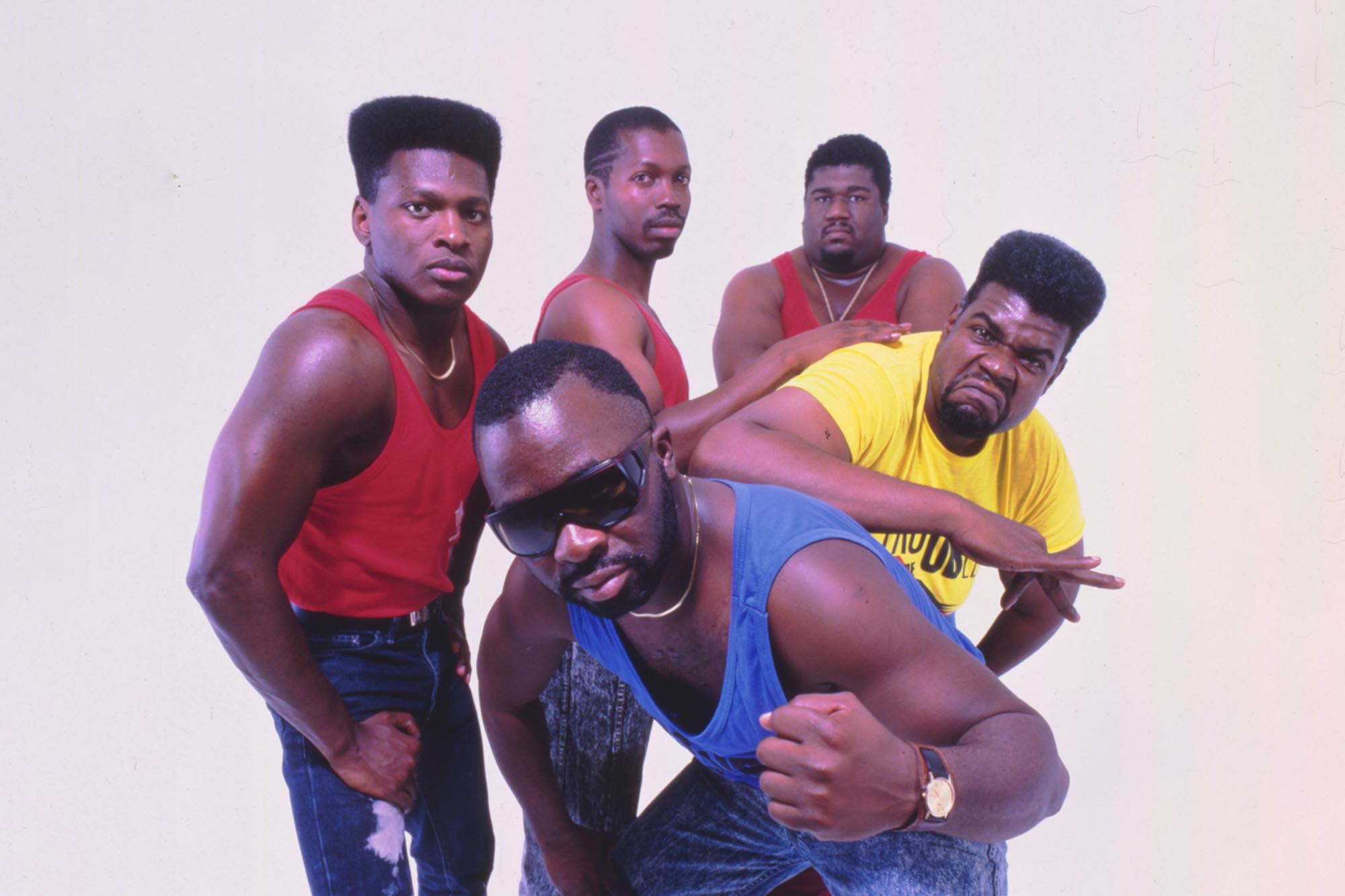 Trouble Funk, representing the vibrant DC go-go scene of 80s funk music.
Trouble Funk, representing the vibrant DC go-go scene of 80s funk music.
Washington D.C.’s go-go scene was home to some of the most electrifying live funk of the 80s, with groups like Rare Essence, E.U., and Chuck Brown’s Soul Searchers. Trouble Funk encapsulates this energy in “Drop the Bomb,” featuring congas, cowbells, and cryptic party chants against the backdrop of the nation’s capital. The song is a roll call of D.C. crews – Technicolor, Westside, White Boy, Freak, Potomac – keeping the party going until dawn. “Drop the Bomb” is pure, unadulterated 80s go-go funk.
Toto, ‘Africa’
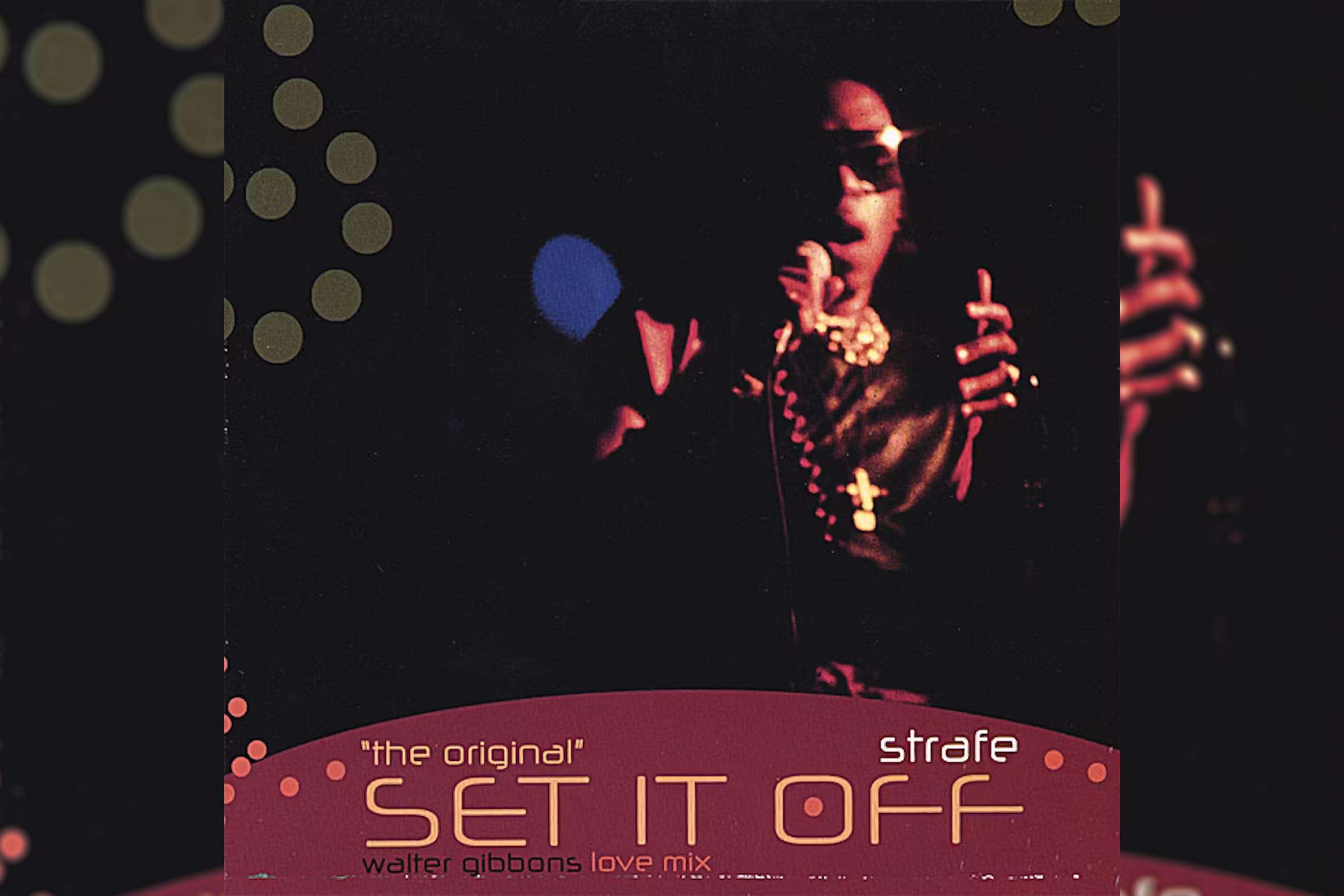 Toto, creators of the enduring and often-discussed 80s hit Africa.
Toto, creators of the enduring and often-discussed 80s hit Africa.
“Africa” by Toto. Ever found yourself pondering, “Why do the wild dogs cry out in the night? Are they melancholic? In need of affection? Were they already crying before Toto arrived? Is there a parallel dimension where we’re all just wild dogs weeping in someone else’s Toto song?” If so, you are not alone. This track, with its iconic melody and somewhat enigmatic lyrics, has sparked countless interpretations and remains one of the most discussed and played songs of the 80s.
INXS, ‘Never Tear Us Apart’
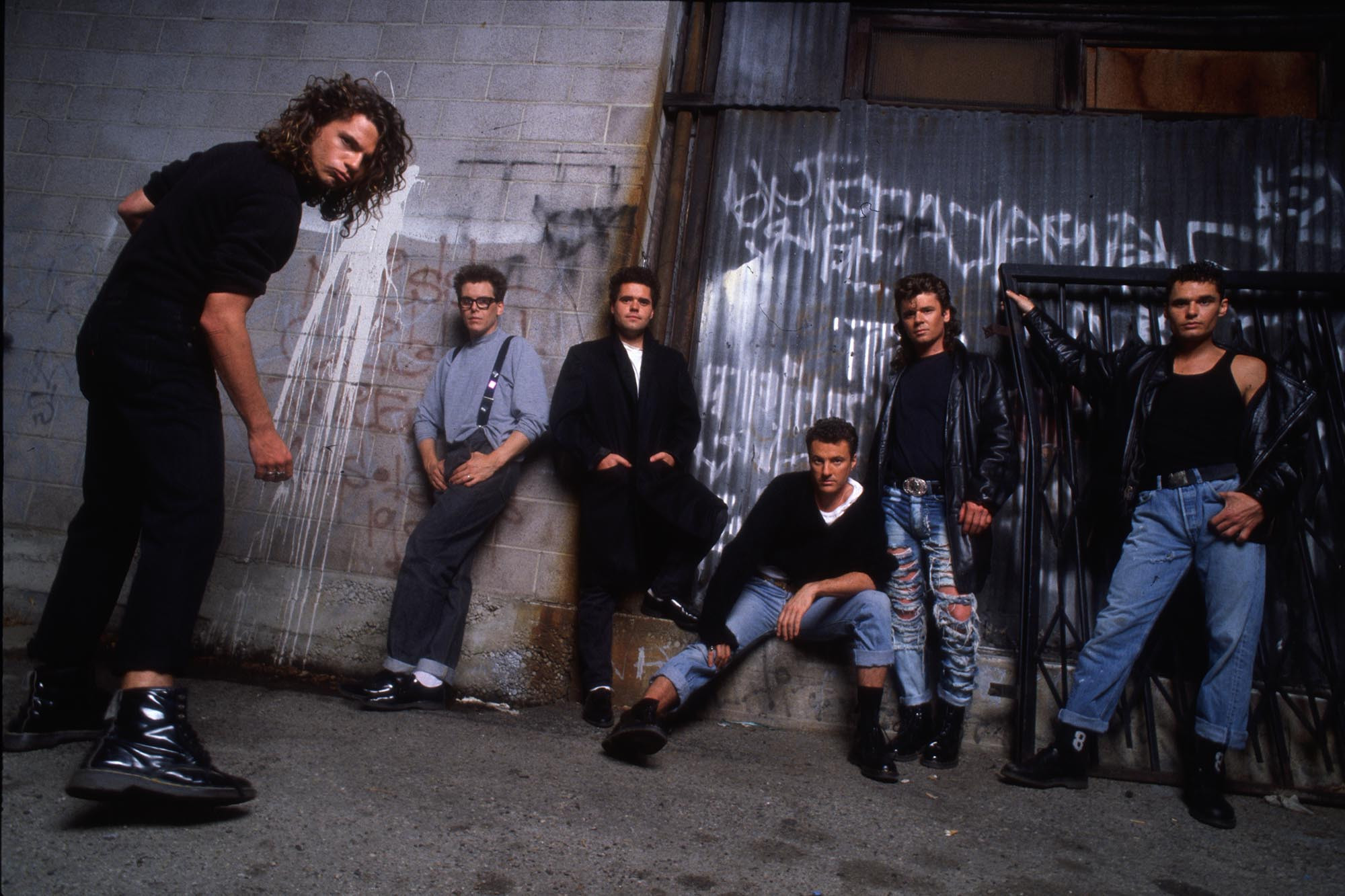 INXS in their prime, led by Michael Hutchence, a charismatic frontman of 80s rock.
INXS in their prime, led by Michael Hutchence, a charismatic frontman of 80s rock.
Michael Hutchence, one of the 80s’ greatest frontmen, pours emotion into “Never Tear Us Apart,” a passionate torch song that reveals his raw vulnerability. As he told Rolling Stone, INXS didn’t fit the “real normal, cleaned-up, corporate rock thing.” “Never Tear Us Apart” contains one of his most iconic vocal moments: “We all have wings, but some of us don’t know whyyyyy!” – a line that perfectly captures the yearning and introspection prevalent in much of 80s music.
Joan Armatrading, ‘Me Myself I’
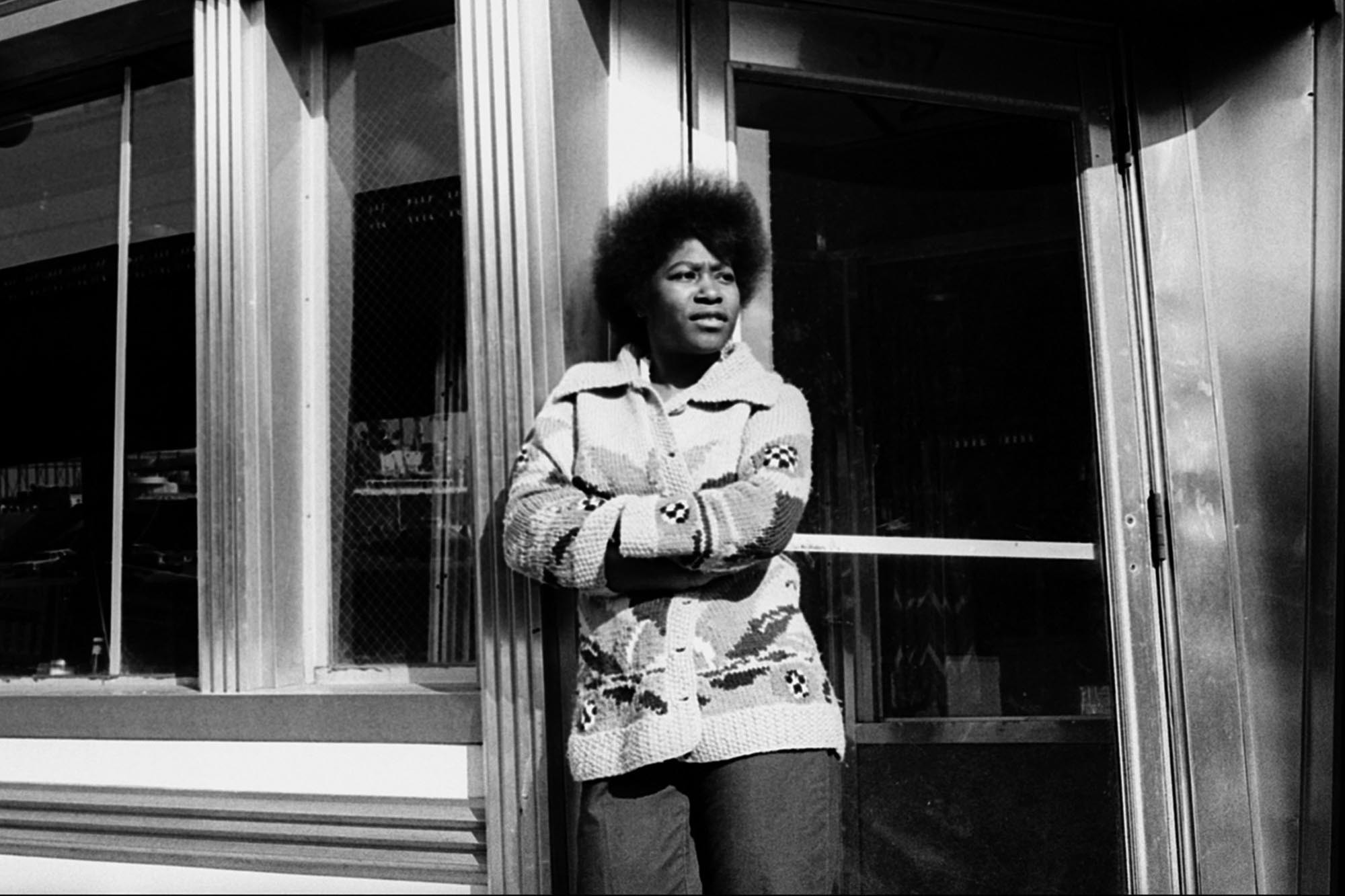 Joan Armatrading in New York, 1981, a unique voice in 80s music, celebrating individuality.
Joan Armatrading in New York, 1981, a unique voice in 80s music, celebrating individuality.
Joan Armatrading, self-taught guitarist and daughter of West Indian immigrants in England, carved a unique path in music. “There wasn’t a female playing the way I played, or singing the songs that I sang,” she reflected in 2021. “And there certainly wasn’t a Black person doing it. So there was nothing for anybody to have a reference to.” “Me Myself I” is an ode to the joys of solitude and independence. “I wanna have a boyfriend and a girl for laughs,” she sings, “But only on Saturday/Six days to be alone.” It’s a powerful statement of self-reliance in the 80s music landscape.
‘Weird Al’ Yankovic, ‘Another One Rides the Bus’
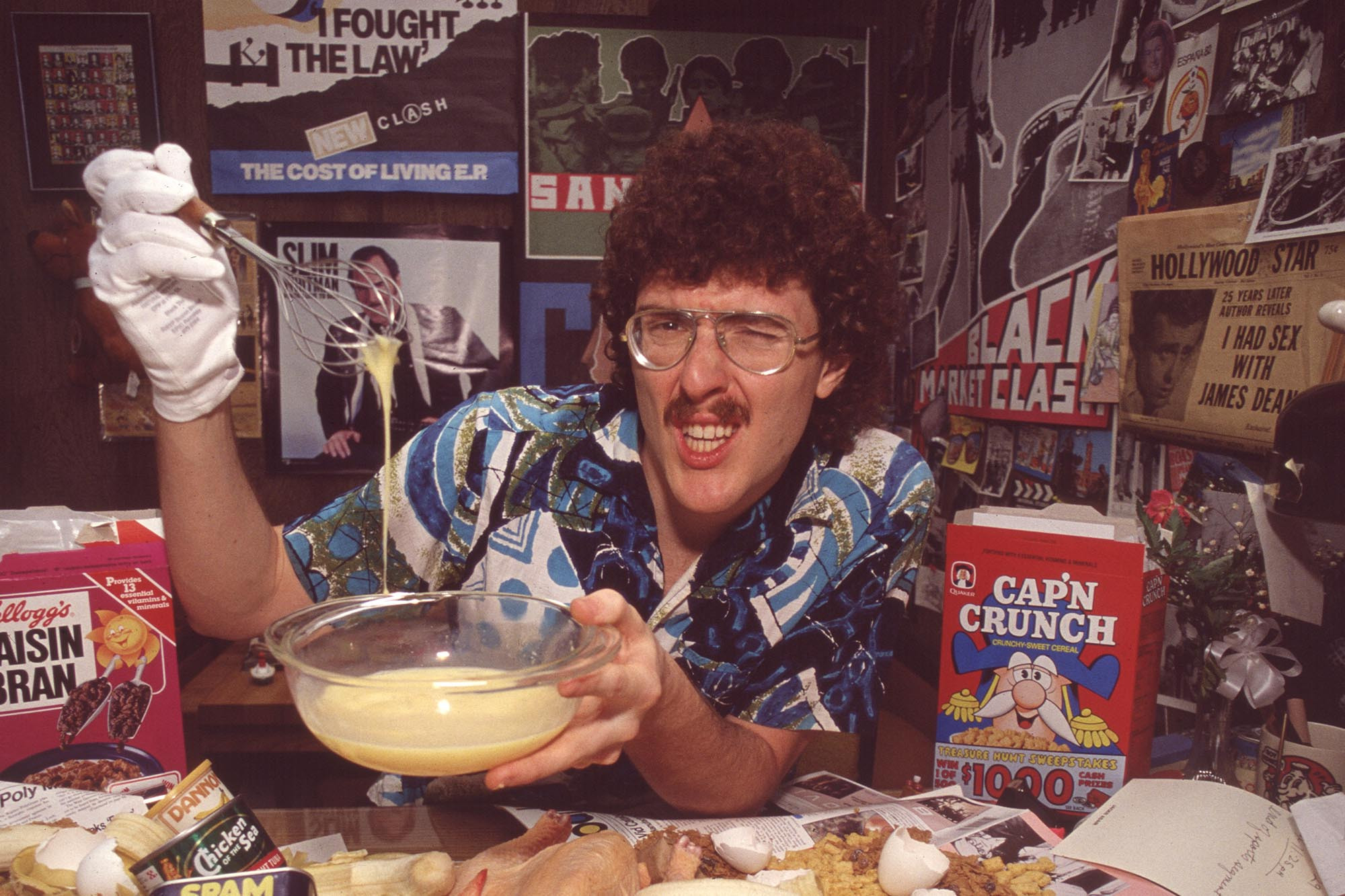 Weird Al Yankovic in 1984, the king of parody who defined humor in 80s music.
Weird Al Yankovic in 1984, the king of parody who defined humor in 80s music.
“Riding in a bus down the boulevard and the place is pretty packed/Couldn’t find a seat so I had to stand with the perverts in the back.” “Weird Al” Yankovic reshaped the perception of the accordion with this track. Following his initial hit “My Bologna,” many considered him a novelty act. However, “Another One Rides the Bus,” a parody of Queen’s “Another One Bites the Dust,” became his pivotal second hit, demonstrating his endless creativity. It paved the way for a career filled with parodies like “Yoda,” “(I Lost On) Jeopardy,” and “Chicken Pot Pie.” Yankovic’s career has remarkably outlasted many of the artists he’s parodied, solidifying his place in 80s music history.
Mahlathini and the Mahotella Queens, ‘Ngicabange Ngaqeda’
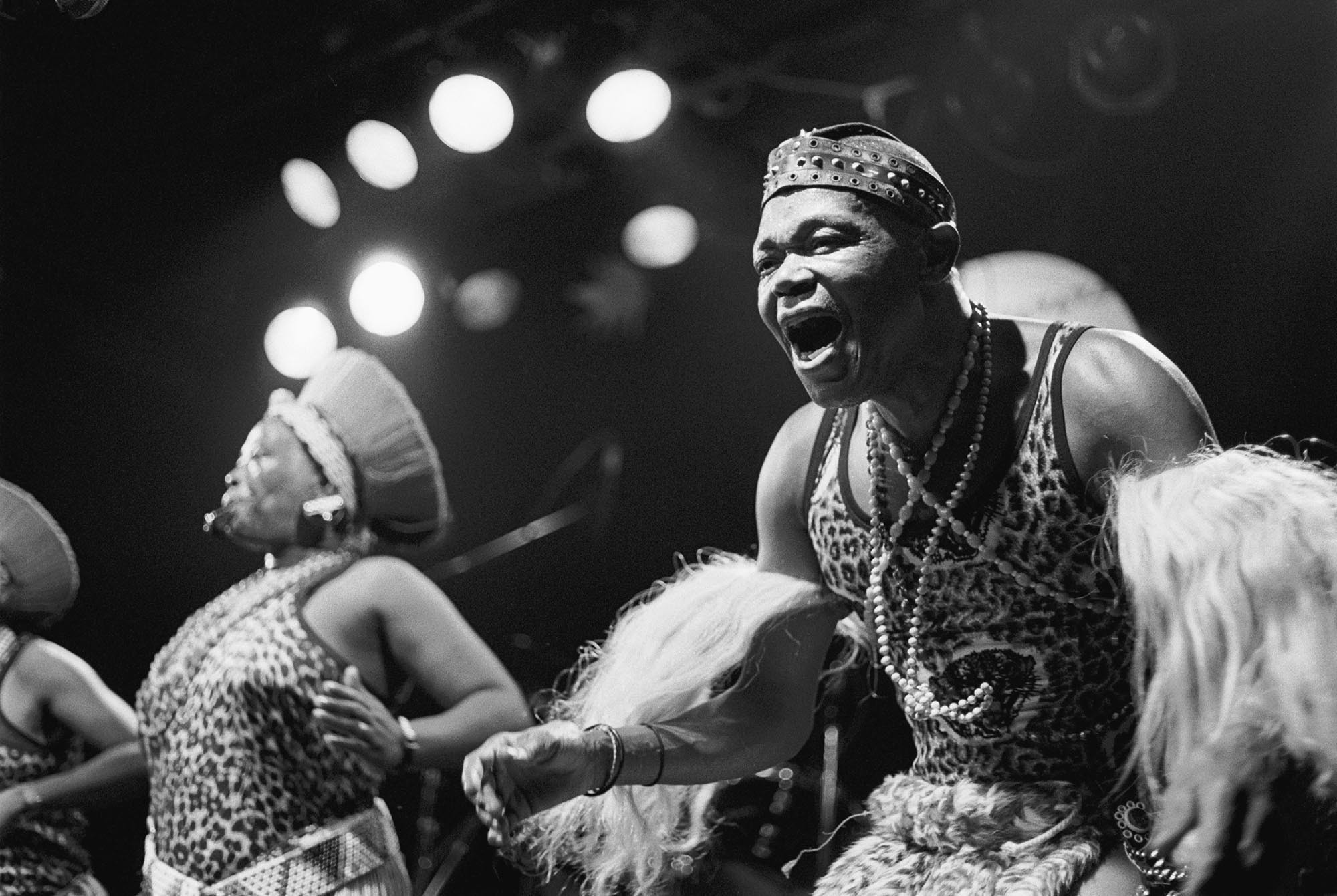 Mahlathini and the Mahotella Queens performing in Amsterdam, 1988, bringing South African mbaqanga to global audiences.
Mahlathini and the Mahotella Queens performing in Amsterdam, 1988, bringing South African mbaqanga to global audiences.
A classic of South African mbaqanga, “Ngicabange Ngaqeda” comes from the compilation The Indestructible Beat of Soweto, which introduced global audiences to the beauty created by township artists amidst apartheid’s brutality. Simon “Mahlathini” Nkabinde, “the Lion of Soweto,” with his deep bass voice, teamed up with the Mahotella Queens. The Makgona Tshole Band served as Johannesburg’s equivalent to Motown’s Funk Brothers, backing countless hits. Before Paul Simon’s Graceland, these artists were creating the rhythm of resistance, making their mark on 80s world music.
Spacemen 3, ‘That’s Just Fine’
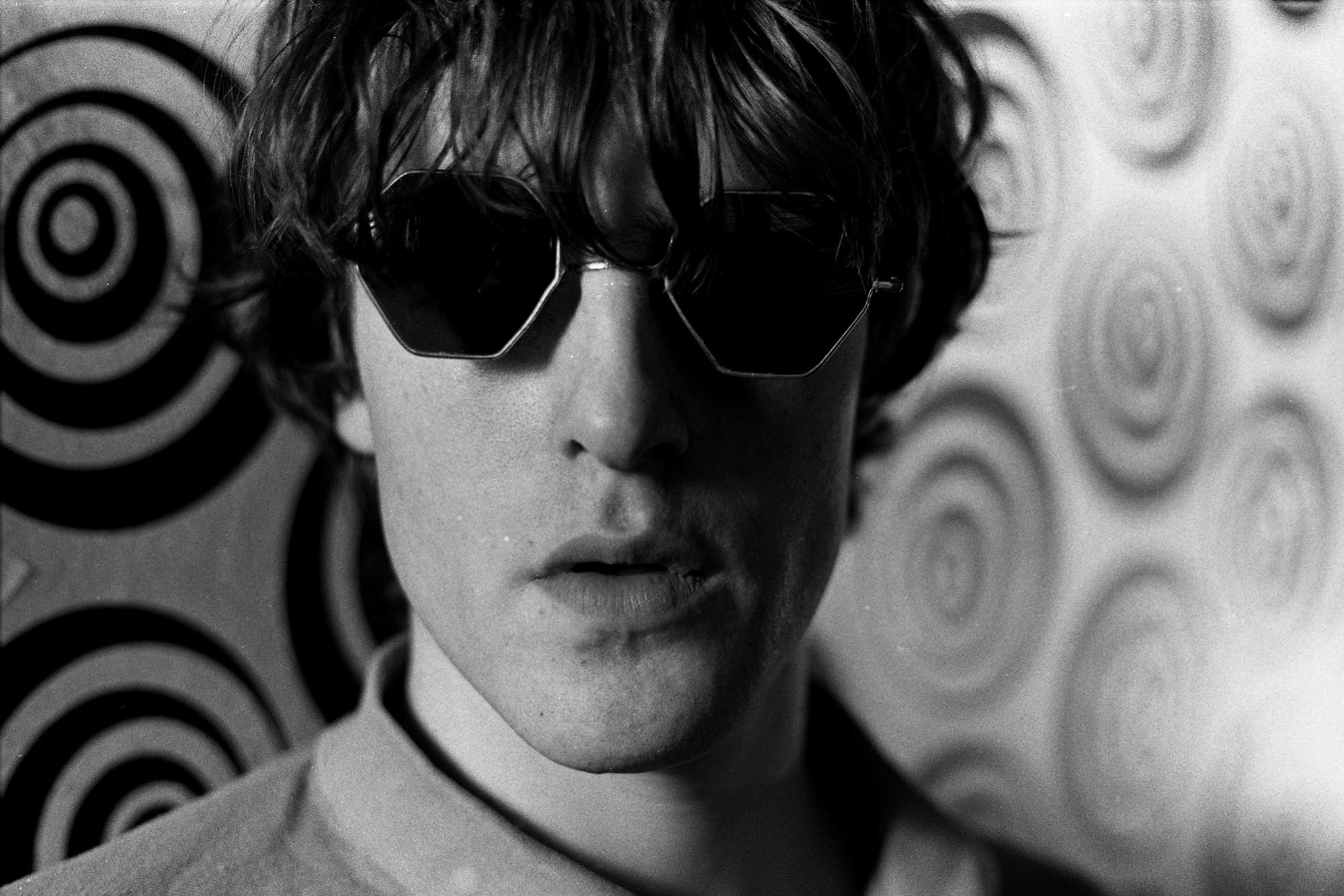 Jason Pierce of Spacemen 3 in 1991, pioneers of psychedelic and space rock in 80s alternative.
Jason Pierce of Spacemen 3 in 1991, pioneers of psychedelic and space rock in 80s alternative.
Spacemen 3, the epitome of lysergic English boys in a guitar trance, featured on their compilation Taking Drugs to Make Music to Take Drugs To. Sonic Boom and Jason “Bassman” Pierce crafted a hypnotic loop of feedback and echo, drawing from the Velvet Underground and The Stooges. In “That’s Just Fine,” not much happens beyond a stoned voice murmuring “that’s just fiiiine” for minutes on end, humming a melody reminiscent of Brian Wilson. It’s a track as romantically evocative as “Surfer Girl,” in its own unique, drug-induced 80s way.
Peter Schilling, ‘Major Tom (Coming Home)’
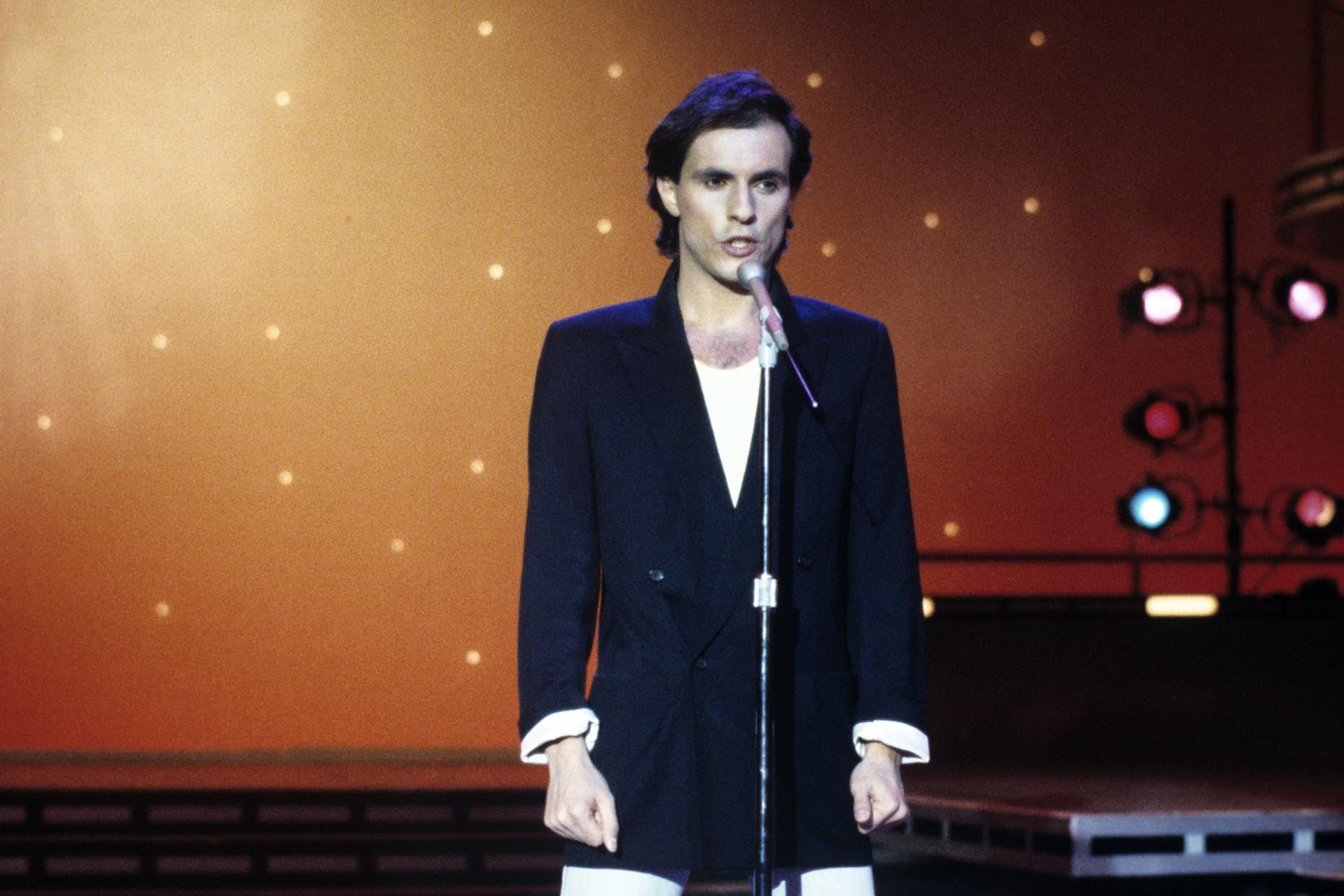 Peter Schilling on American Bandstand, 1983, performing his synth-pop hit Major Tom.
Peter Schilling on American Bandstand, 1983, performing his synth-pop hit Major Tom.
The saga of Major Tom continues. German one-hit wonder Peter Schilling offered an unofficial sequel to David Bowie’s “Space Oddity” and “Ashes to Ashes” with “Major Tom (Coming Home)”. The song follows Major Tom lost in space, adrift in his capsule. “Major Tom” became a synth-pop classic in its own right, demonstrating the 80s penchant for space-themed narratives and musical fanfiction.
Rush, ‘The Spirit of Radio’
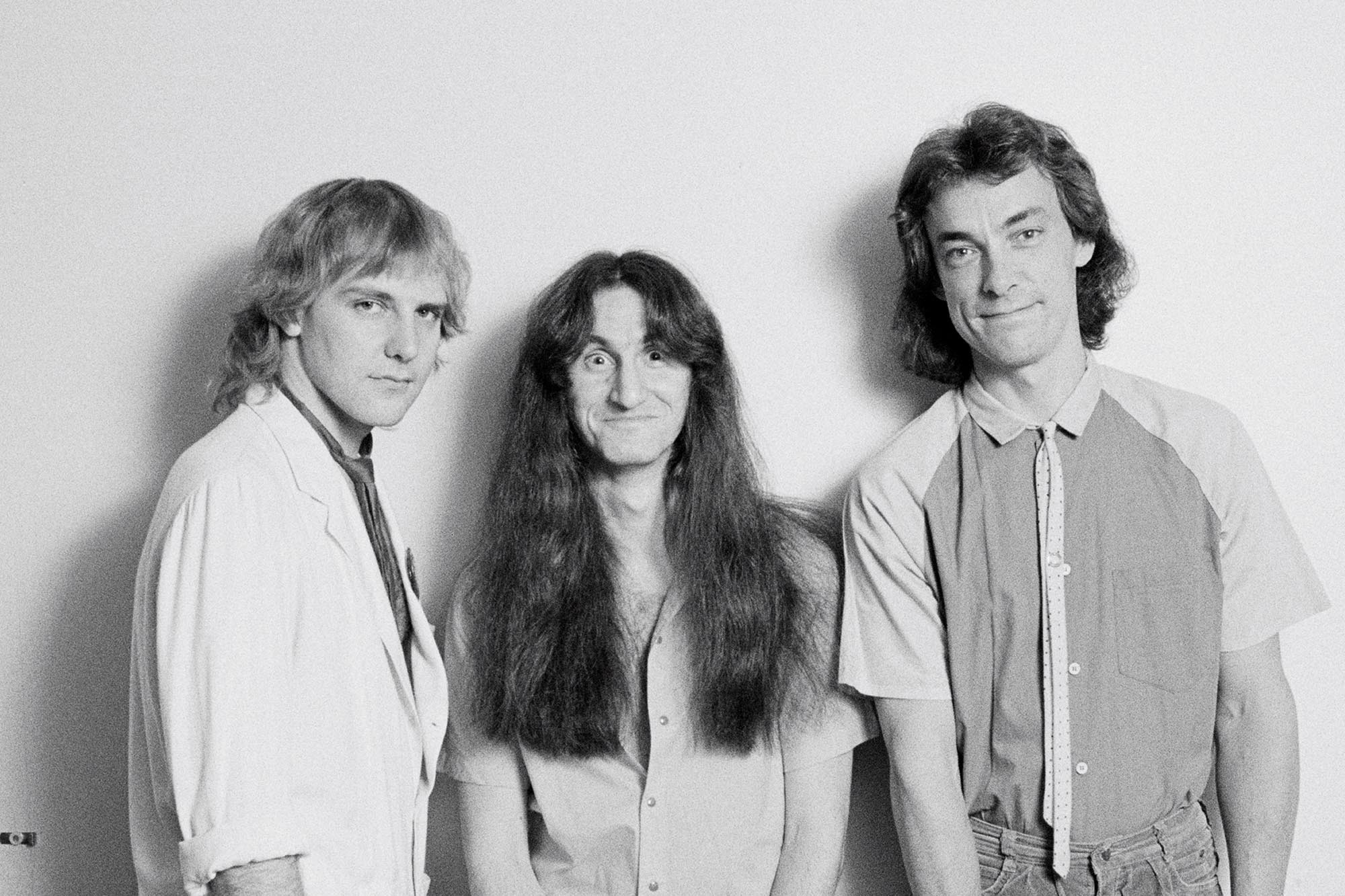 Rush backstage in England, 1980, the progressive rock trio exploring radio and music in the 80s.
Rush backstage in England, 1980, the progressive rock trio exploring radio and music in the 80s.
Rush tackles the essence of radio in “The Spirit of Radio,” searching for authenticity amidst commercial pressures. It’s a typical Rush exploration of pop music dynamics, focusing on rhythm’s timeless appeal, even incorporating a reggae interlude. Geddy Lee’s powerful delivery of “It’s really just a question of your honesty/Yeah, your honesty!” is one of the song’s most memorable moments, capturing the band’s intellectual and musical depth in the 80s.
Steel Pulse, ‘Chant a Psalm’
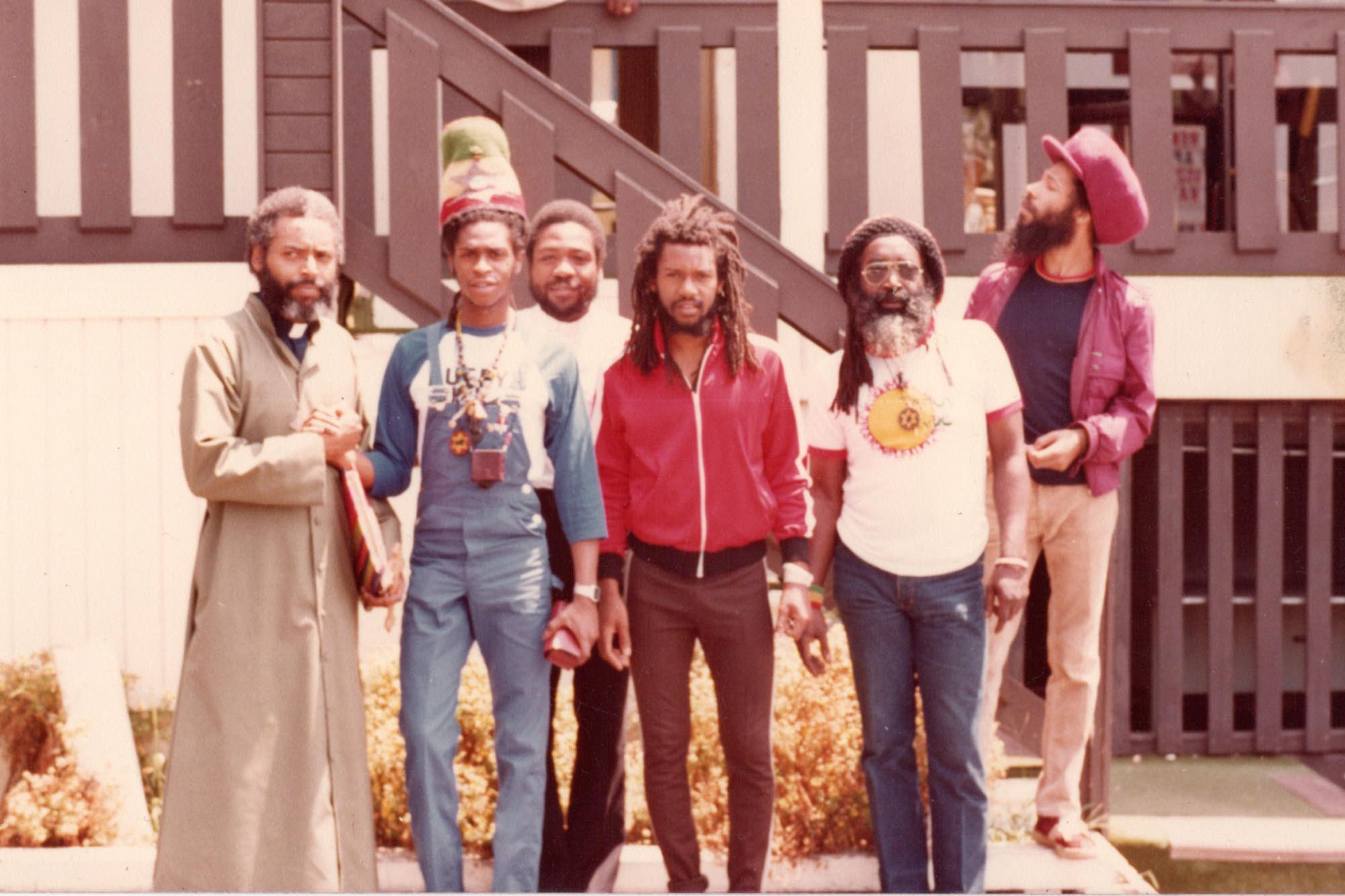 Steel Pulse in Hollywood, 1982, bringing roots reggae and social commentary to 80s music.
Steel Pulse in Hollywood, 1982, bringing roots reggae and social commentary to 80s music.
“Good tidings I bring you,” David Hinds sings in Steel Pulse’s “Chant a Psalm” from True Democracy. It was a message of hope amidst personal and political turmoil for the UK reggae band from Birmingham. Hinds finds solace in biblical figures, invoking Moses, Daniel, Samson, and Solomon, urging listeners to “Attract these angels in dreams and in your prayers.” “Chant a Psalm” offered spiritual and political resonance within 80s reggae.
Strafe, ‘Set It Off’
 Toto, creators of the enduring and often-discussed 80s hit Africa.
Toto, creators of the enduring and often-discussed 80s hit Africa.
An underground NYC boombox anthem, Strafe’s “Set It Off” features overdriven 808s and the direct question, “Y’all want this party started right? Y’all want this party started quickly?” Not a mainstream hit, but its influence permeated hits for decades. “Set It Off” is a foundational track in the development of 80s and subsequent dance music genres.
The Police, ‘When the World Is Running Down’
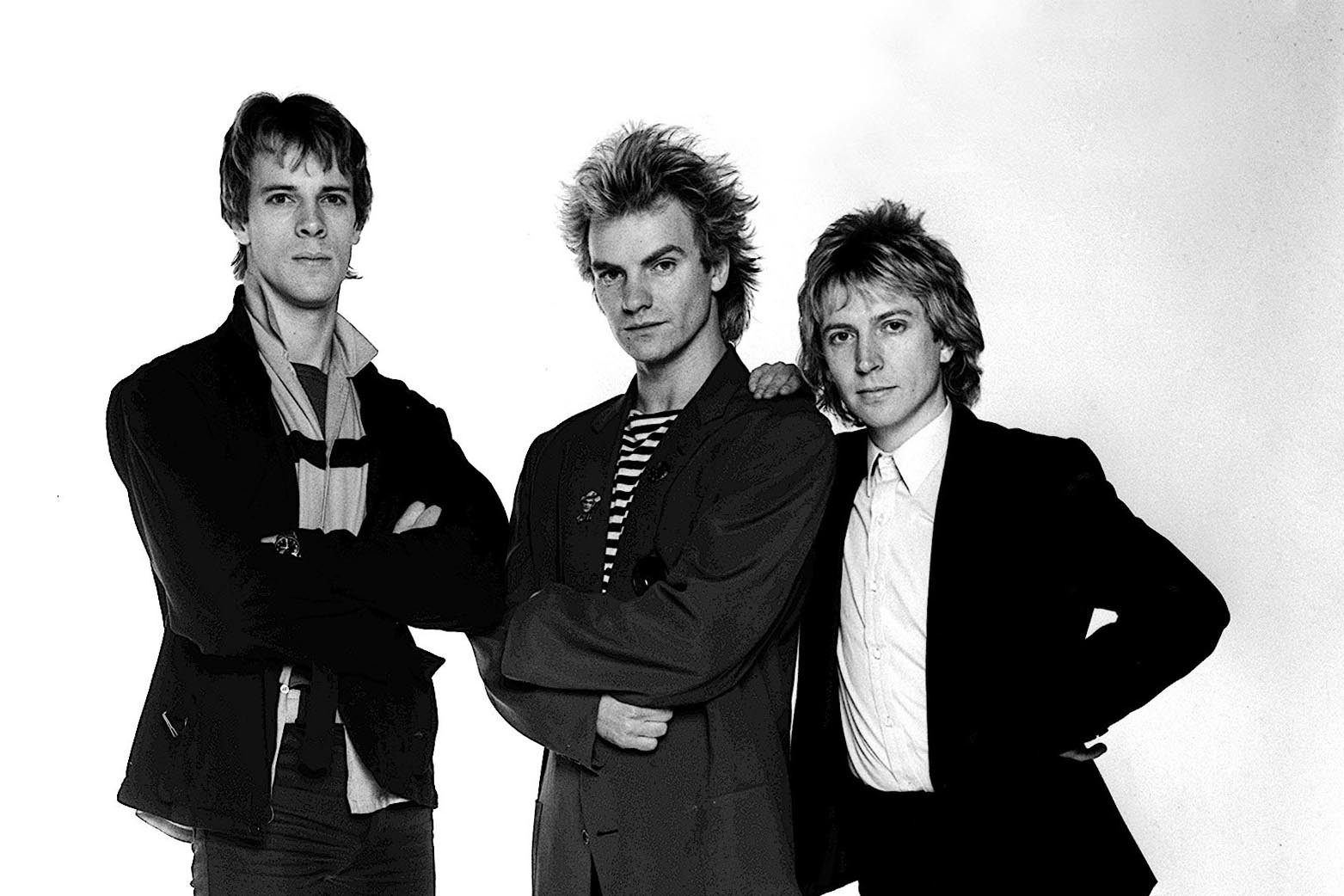 The Police in studio, 1980, capturing their blend of rock, reggae, and new wave in 80s music.
The Police in studio, 1980, capturing their blend of rock, reggae, and new wave in 80s music.
The Police, with their iconic hits, also delivered deep cuts like “When the World Is Running Down” from Zenyatta Mondatta. Sting described the period as “a very difficult time…There was a sense of urgency and quite a lot of drugs.” The track explores capitalist boredom, depicting a European in his mansion, watching bootleg James Brown videos and questioning the emptiness of his luxuries. The mantra, “When the world is running down, you make the best of what’s still around,” provides a cynical yet catchy commentary on 80s excess and disillusionment.
Oran ‘Juice’ Jones, ‘The Rain’
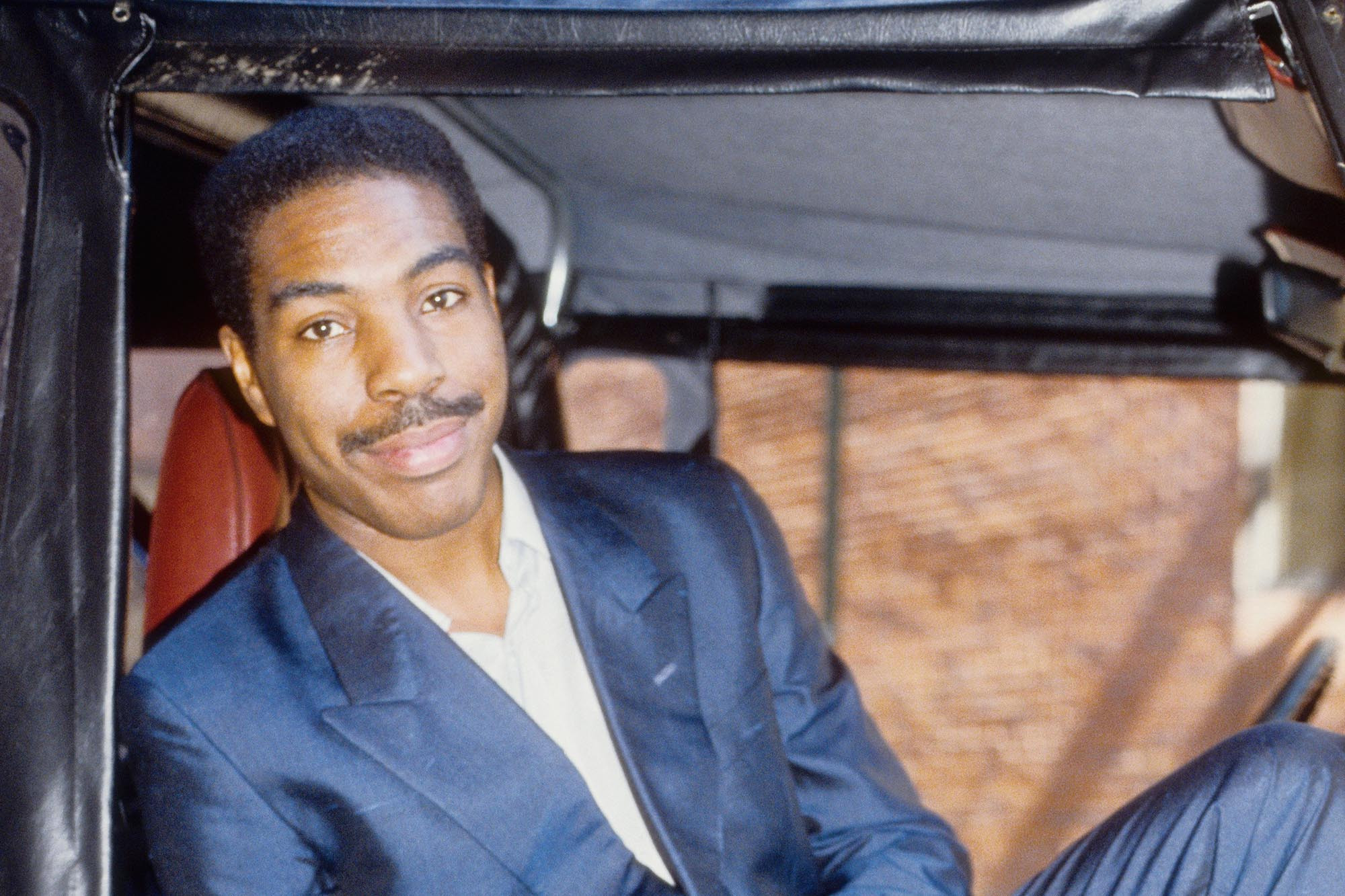 Oran Juice Jones in 1987, known for his dramatic R&B storytelling in songs like The Rain.
Oran Juice Jones in 1987, known for his dramatic R&B storytelling in songs like The Rain.
Oran “Juice” Jones isn’t one for sentimentality. “The Rain” begins as a smooth R&B ballad about catching his girl holding hands with someone new. By the time she returns home, her bags are packed. Then comes a breakup monologue worthy of an Oscar. “What was you trying to prove? This was the Juice! I gave you things you couldn’t even pronounce!” Jones declares, ending with the unforgettable line, “You without me like cornflake without the milk!” “The Rain” is a prime example of 80s R&B storytelling with a dramatic flair.
Bananarama, ‘Shy Boy’
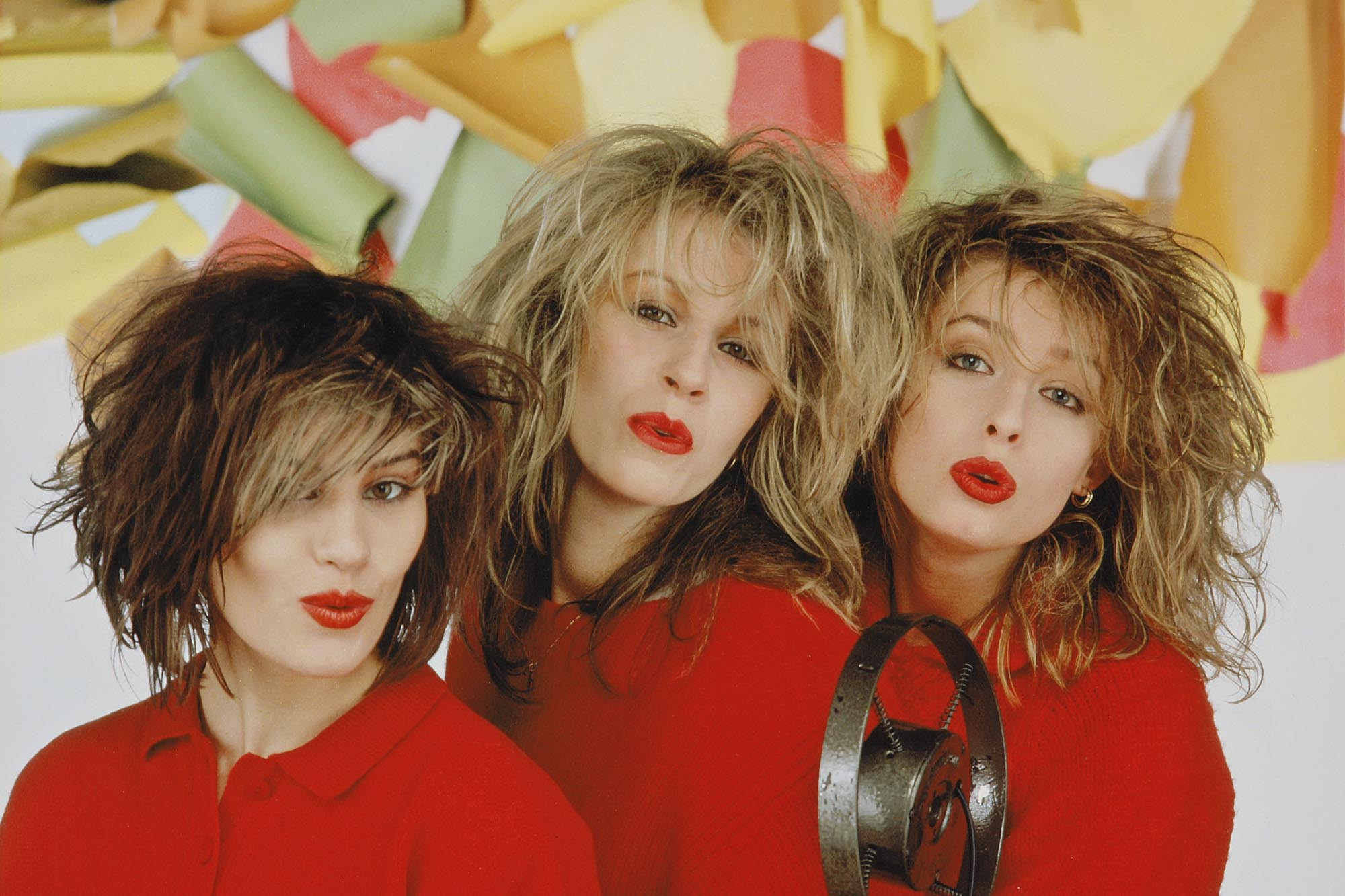 Bananarama in London, 1983, the girl group that defined cool in 80s pop music.
Bananarama in London, 1983, the girl group that defined cool in 80s pop music.
Shy boys without Bananarama? Unthinkable, like “cornflake without the milk.” Siobhan Fahey, Sarah Dallin, and Keren Woodward’s girl gang dominated the 80s, evolving from post-punk shoop-shoopers to hi-NRG disco queens seemingly without formal vocal training. “Shy Boy,” from their debut Deep Sea Skiving, is their most irresistible hit, showcasing their signature bored pouts and unison vocals. It’s one of the few Bananarama songs where boys get any attention at all, besides Robert De Niro, making it a standout in their 80s discography.
Minor Threat, ‘Straight Edge’
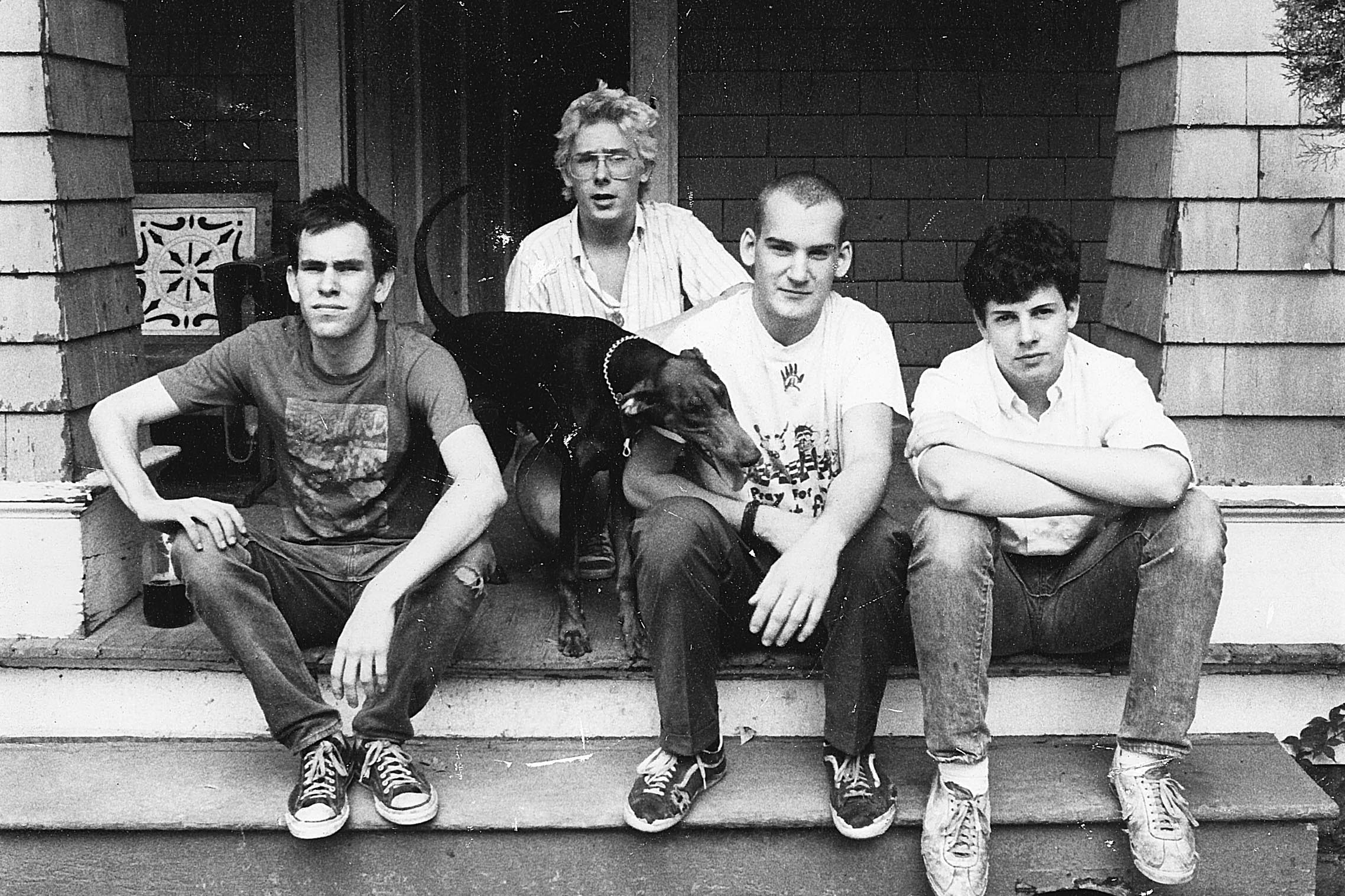 Minor Threat in 1982, pioneers of hardcore punk and the straight edge movement in 80s music.
Minor Threat in 1982, pioneers of hardcore punk and the straight edge movement in 80s music.
Hardcore at its most potent. Minor Threat’s “Straight Edge” is raw and direct, kids speaking to kids, bypassing intermediaries to express raw emotion. The D.C. crew’s anthem isn’t about rules, but about taking control of your life. At just 46 seconds, it’s the shortest song on this list, yet incredibly impactful, especially when Ian MacKaye’s voice cracks as he pushes “something I just don’t neeeeed.” “Straight Edge” is a defining moment in 80s hardcore punk.
The Raincoats, ‘No One’s Little Girl’
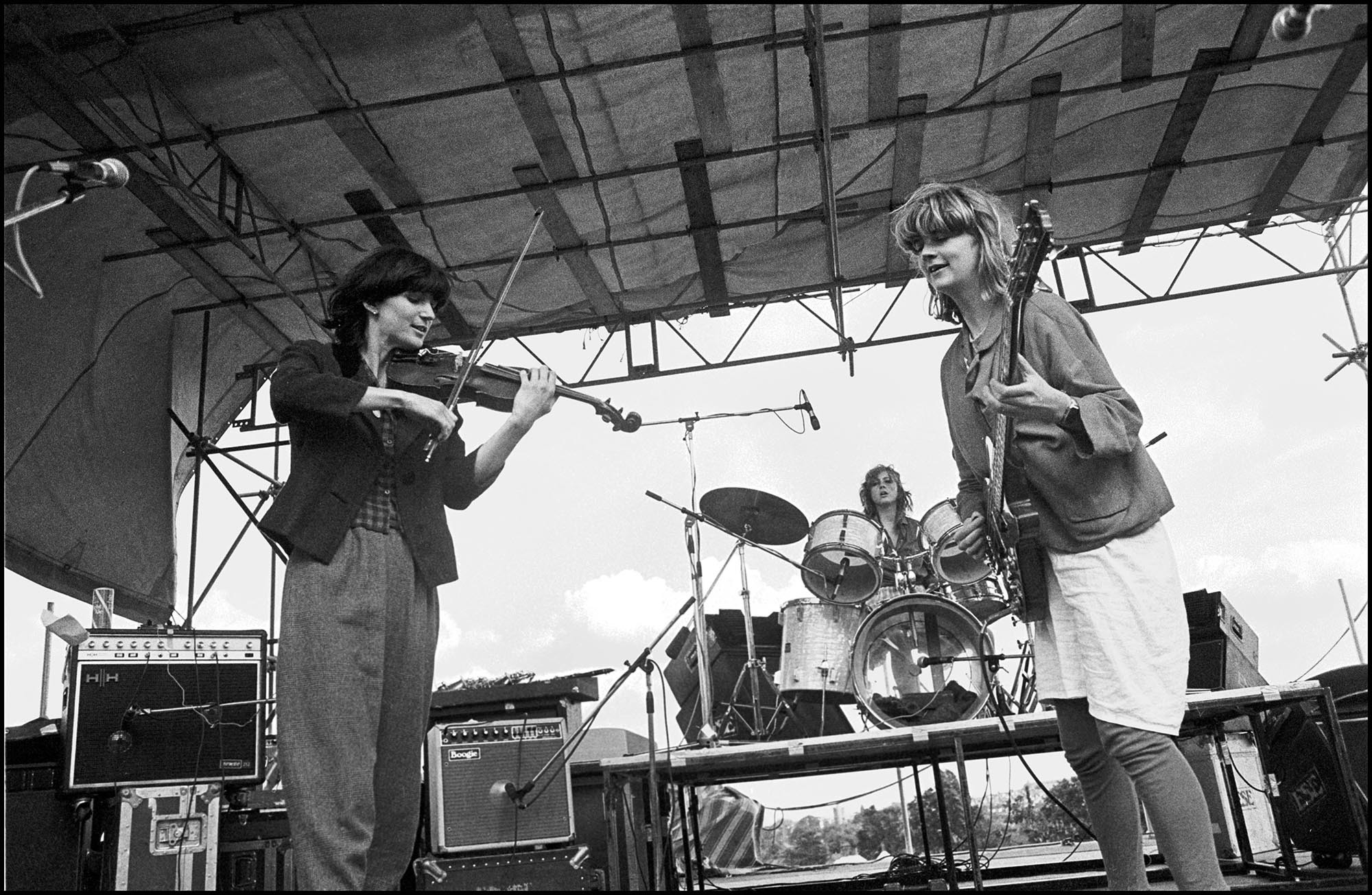 The Raincoats, redefining punk rock with feminist perspectives in 80s alternative.
The Raincoats, redefining punk rock with feminist perspectives in 80s alternative.
The Raincoats redefined punk in the early 80s with art-school feminist aggression and a distinctly London deadpan humor. “No One’s Little Girl” is a quirky, energetic track challenging misogynistic clichés, reminiscent of their albums The Raincoats and Odyshape. Gina Birch’s chant, “I never shall be in your family tree,” over Ana Da Silva’s guitar and Vicky Aspinall’s violin, makes “No One’s Little Girl” a unique and influential feminist statement in 80s punk.
Ray Parker Jr., ‘I Still Can’t Get Over Lovin’ You’
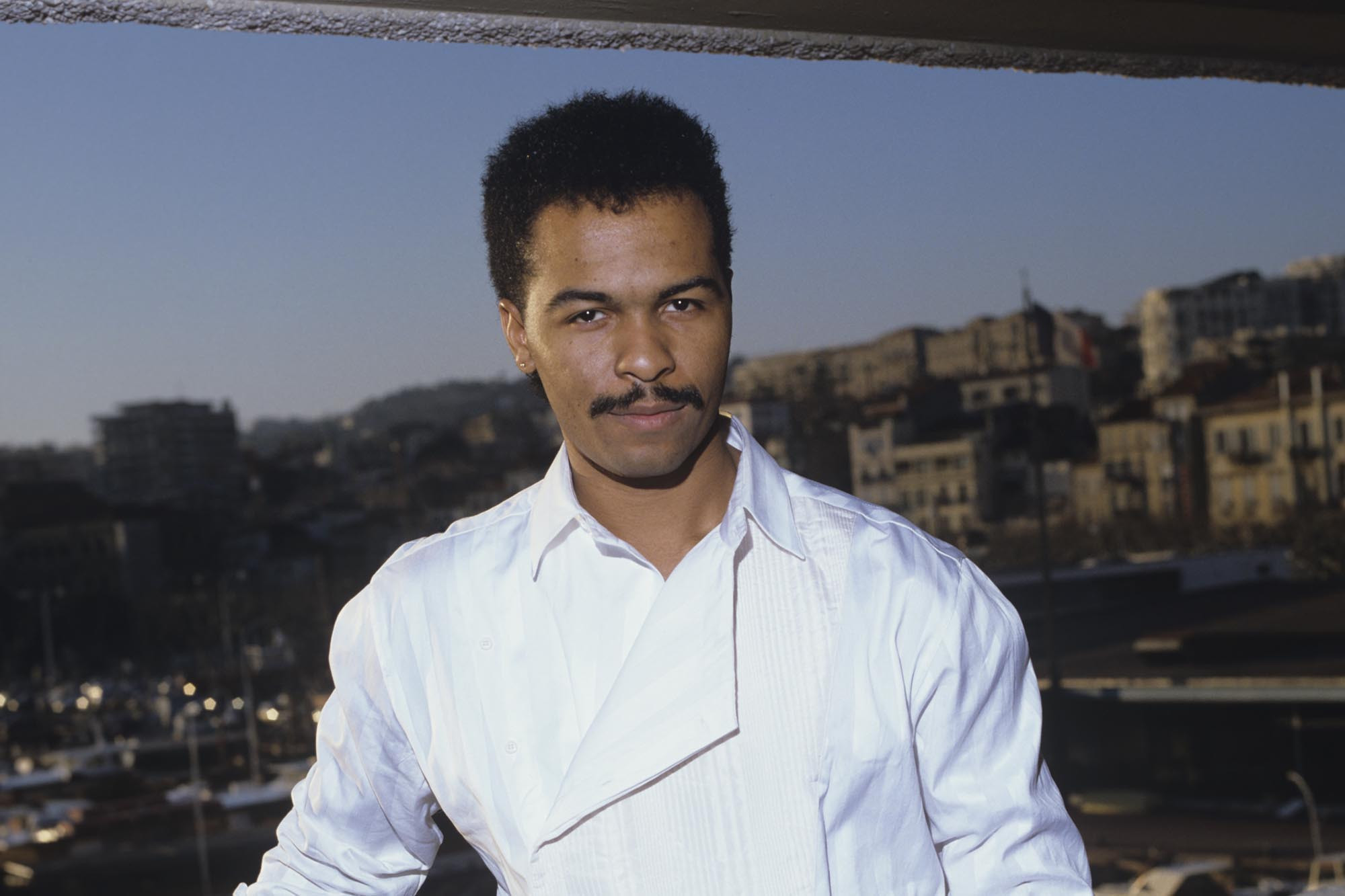 Ray Parker Jr. in Cannes, 1985, a versatile artist behind underrated 80s pop hits.
Ray Parker Jr. in Cannes, 1985, a versatile artist behind underrated 80s pop hits.
Ray Parker Jr., an underrated 80s pop genius responsible for hits like “A Woman Needs Love” and “The People Next Door,” began as a Motown prodigy (guitar solo on Stevie Wonder’s “Maybe Your Baby”). For “I Still Can’t Get Over Loving You,” he embraced UK synth-pop influences, creating a New Wave ballad, confessing “I can’t turn you loose, though I know it’s self-abuse” with palpable sadness. He even nods to his Britpop inspiration, subtly referencing The Police with “Every breath you take, I’ll be watching you, girl,” showcasing his range within 80s pop.
Girlschool, ‘Yeah Right’
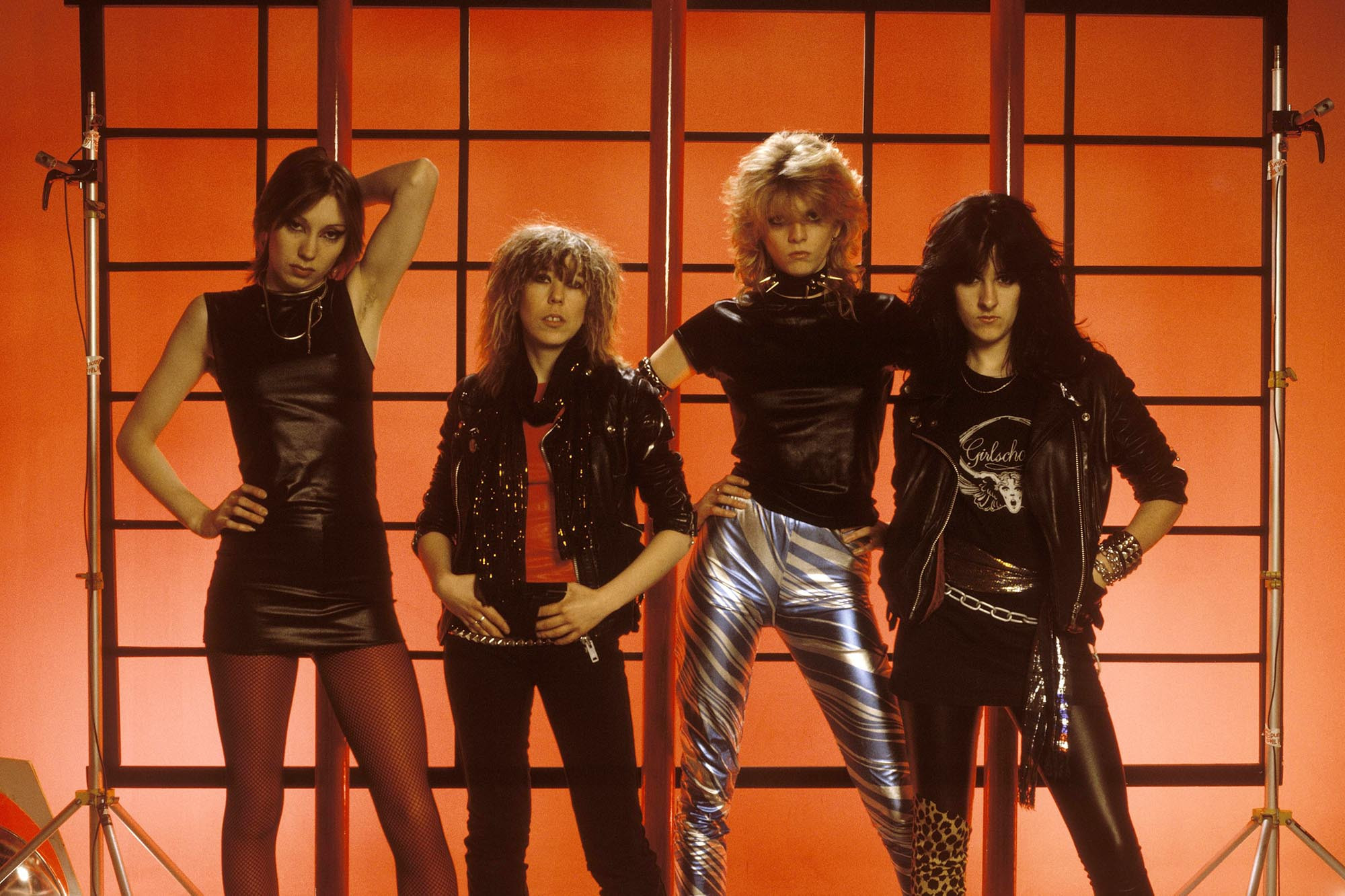 Girlschool, the all-female metal band rocking the 80s with feminist anthems.
Girlschool, the all-female metal band rocking the 80s with feminist anthems.
Girlschool, the feminist metal force from the UK, unleashed “Yeah Right” as a rebellious anthem for women’s right to freedom and fun. Kelly Johnson’s dynamic guitar riffs drive this track about challenging societal expectations. Motörhead’s Philthy Animal Taylor even makes a cameo in the video as an angry mother, adding to the song’s playful defiance and solidifying Girlschool’s place in 80s metal.
Ministry, ‘Revenge’
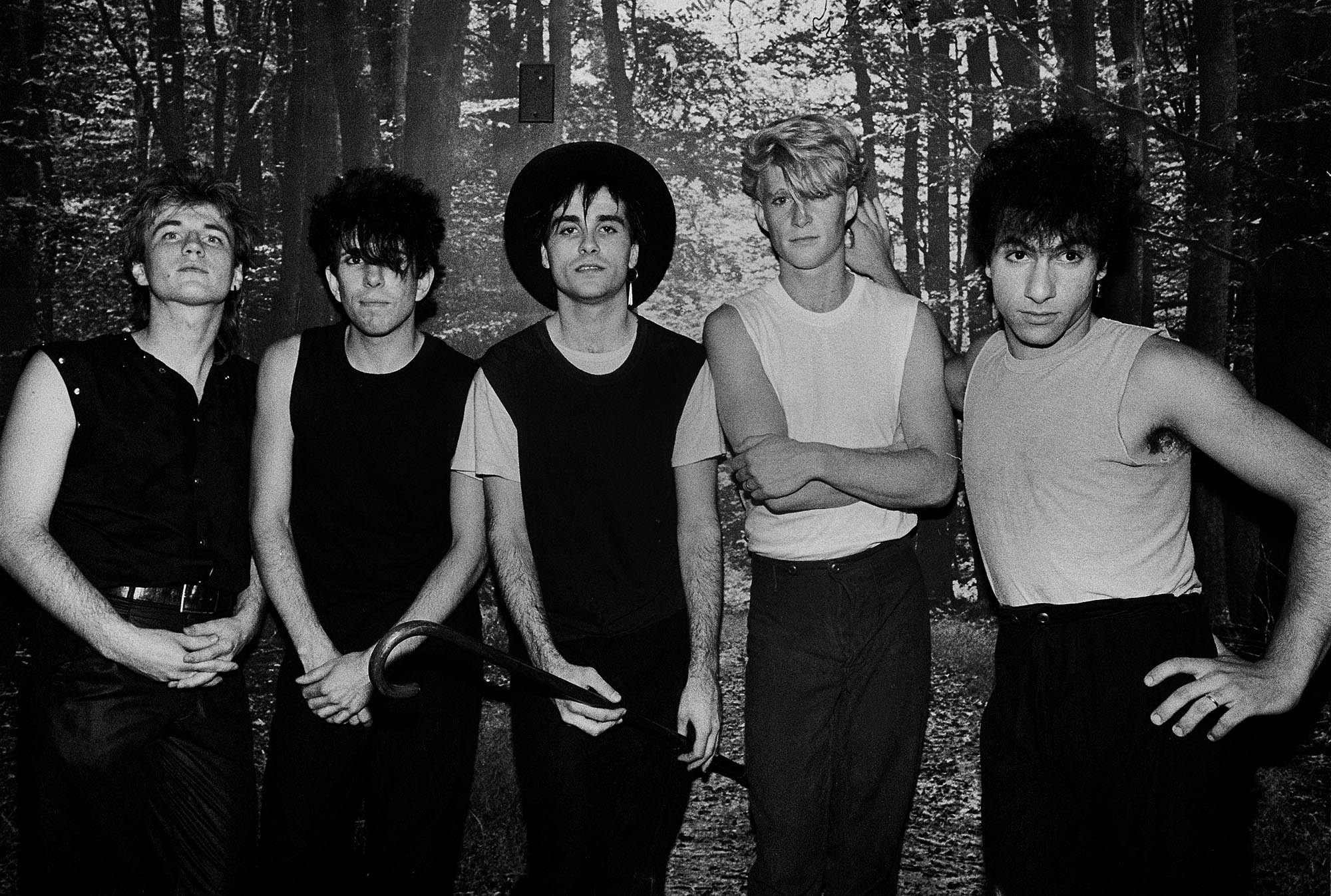 Ministry in Chicago, 1982, Al Jourgensen in his early synth-pop phase of 80s music.
Ministry in Chicago, 1982, Al Jourgensen in his early synth-pop phase of 80s music.
Al Jourgensen, industrial metal icon, has famously disavowed his early synth-pop album With Sympathy. Despite his disdain, tracks like “Revenge,” with its New Romantic synths and questionable faux-British accent, remain fan favorites. “Revenge” is a concise teen-psycho breakup song with an undeniable 80s synth-pop charm. Ironically, Ministry recently performed “Revenge” live for the first time in decades, acknowledging its unexpected appeal and place in their 80s history.
The Rolling Stones, ‘Undercover of the Night’
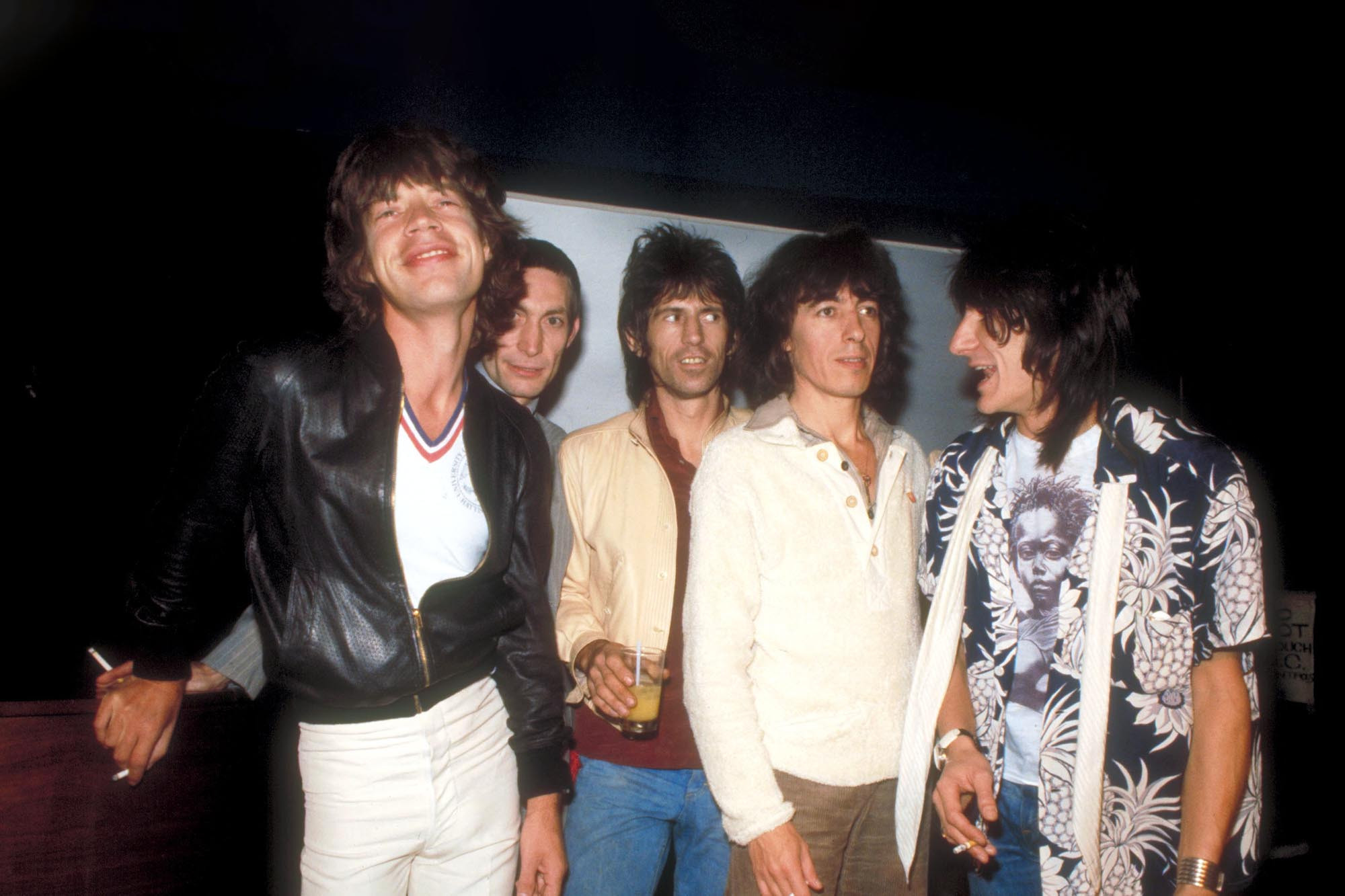 The Rolling Stones in the 80s, reinventing themselves while staying true to their rock roots.
The Rolling Stones in the 80s, reinventing themselves while staying true to their rock roots.
“Undercover of the Night” is an often-overlooked gem from the Rolling Stones’ underrated 80s period. Regardless of other factors, the rhythm section of Bill Wyman and Charlie Watts always delivered, especially here. “Undercover of the Night” marked the Stones’ deliberate foray into 80s sounds, blending influences from The Clash, Grandmaster Flash, Lee Perry, and Duran Duran to create a politically charged track about US involvement in Latin America. It’s a unique and potent moment in the Stones’ 80s output.
The Jim Carroll Band, ‘People Who Died’
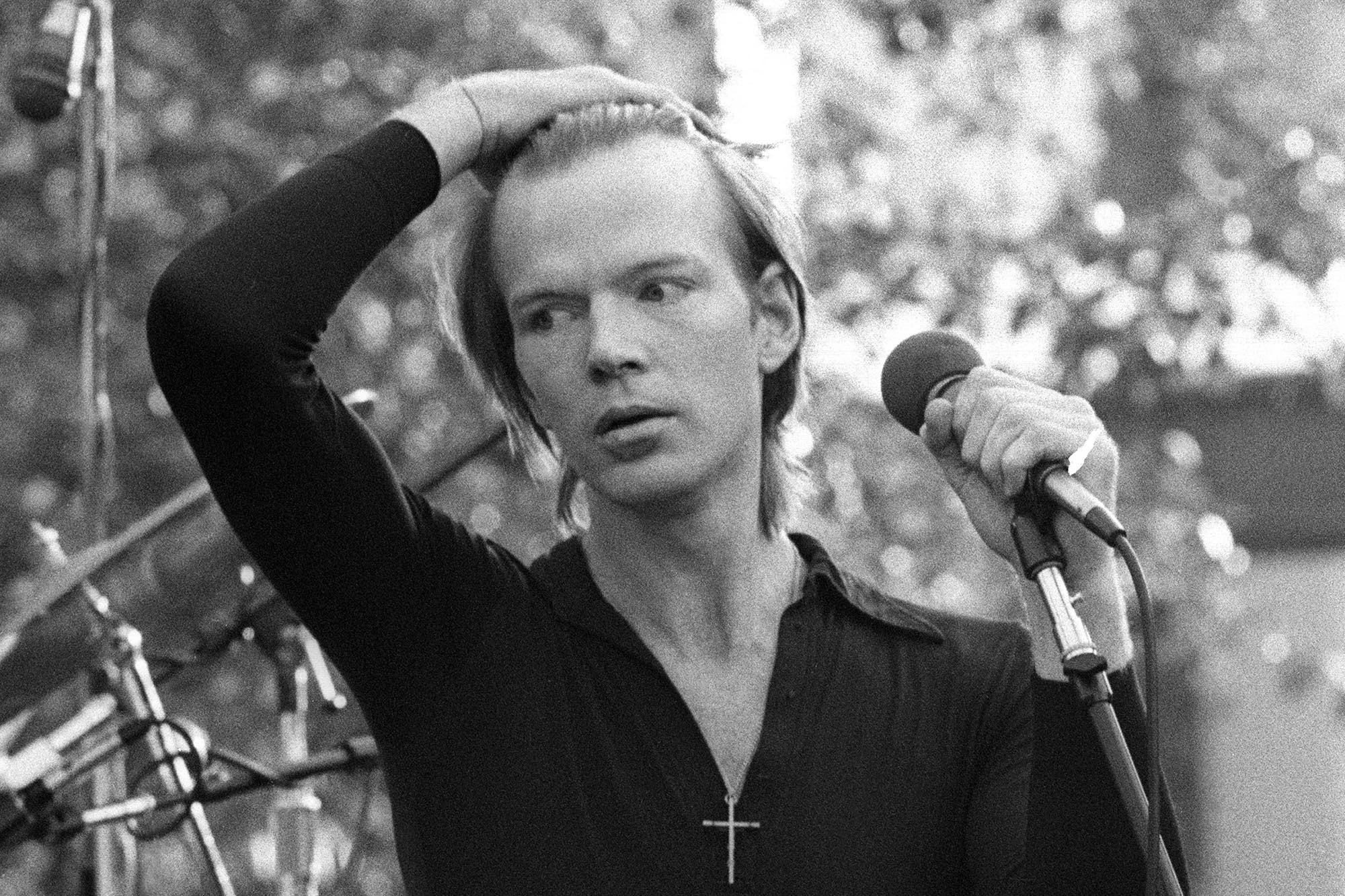 Jim Carroll performing in Berkeley, 1980, blending poetry and punk in his 80s music.
Jim Carroll performing in Berkeley, 1980, blending poetry and punk in his 80s music.
Did any rock star ever list as many dead friends in one song as Jim Carroll? Poet and punk figure from NYC, Carroll channeled his street life into The Basketball Diaries. (He can even be heard on the Velvet Underground’s Live at Max’s Kansas City). “People Who Died,” from his debut Catholic Boy, is a high-speed rock and roll eulogy for friends lost to drugs, alcohol, violence, and accidents. The raw energy and grim subject matter make it a powerful and memorable 80s track. Shout out to Bobby, who manages to die three times in the song.
Samantha Fox, ‘I Wanna Have Some Fun’
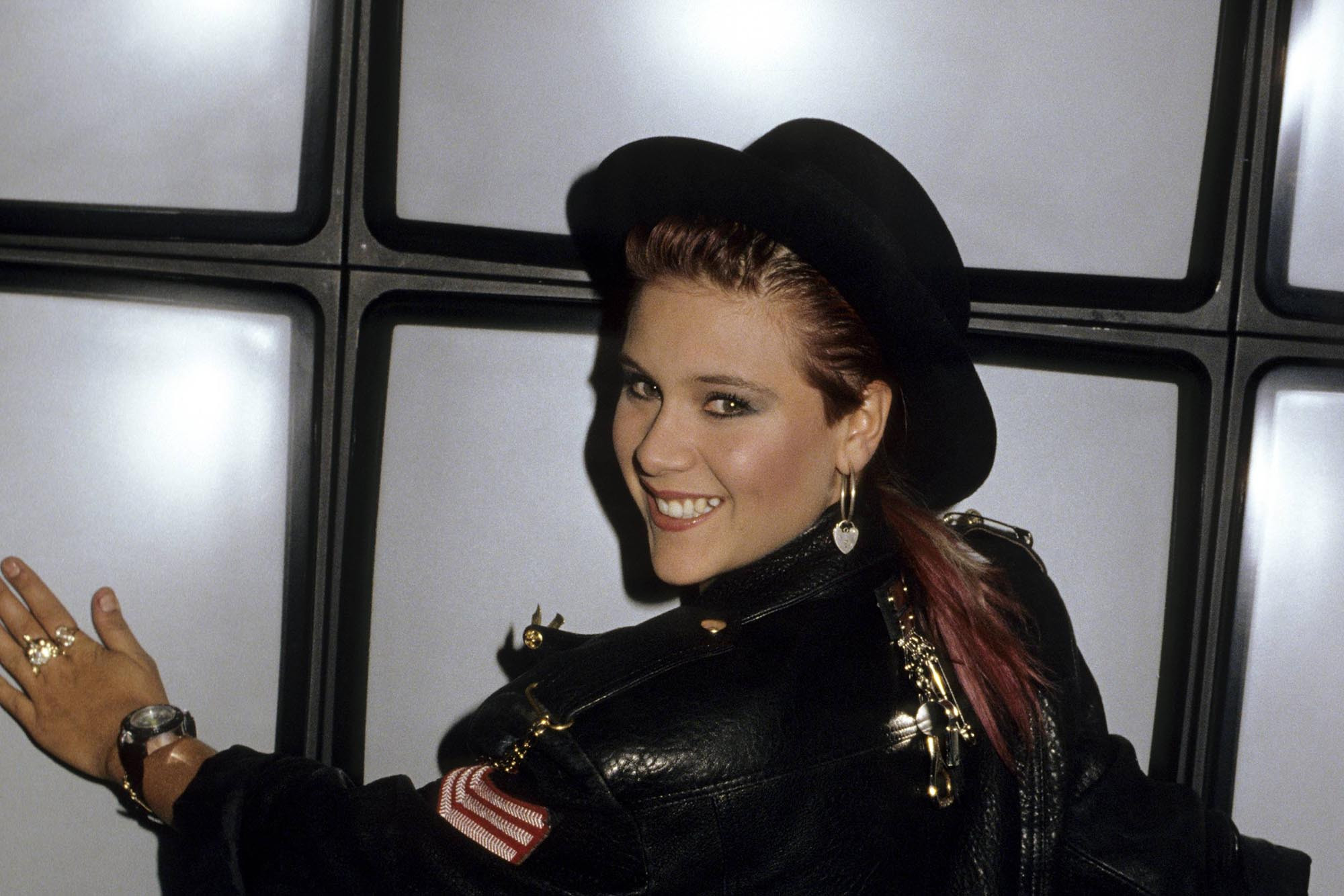 Samantha Fox, the British pop star known for her fun and cheeky 80s disco hits.
Samantha Fox, the British pop star known for her fun and cheeky 80s disco hits.
Samantha Fox, the quintessential trash-disco star with a London accent and future lesbian icon status, returned from her hit “Naughty Girls Need Love Too” with “I Wanna Have Some Fun.” This pro-fun anthem features acid-house strings and a hired B-boy chanting “Sa-Sa-Sa-mantha Fox!” It opens with a playful drunk dial, “Helloooo — it’s me again! Don’t you know it’s hard to keep a good woman down? But then again [naughty yet love-needing giggle] maybe that could be fun!” Pure 80s cheeky fun.
Queen and David Bowie, ‘Under Pressure’
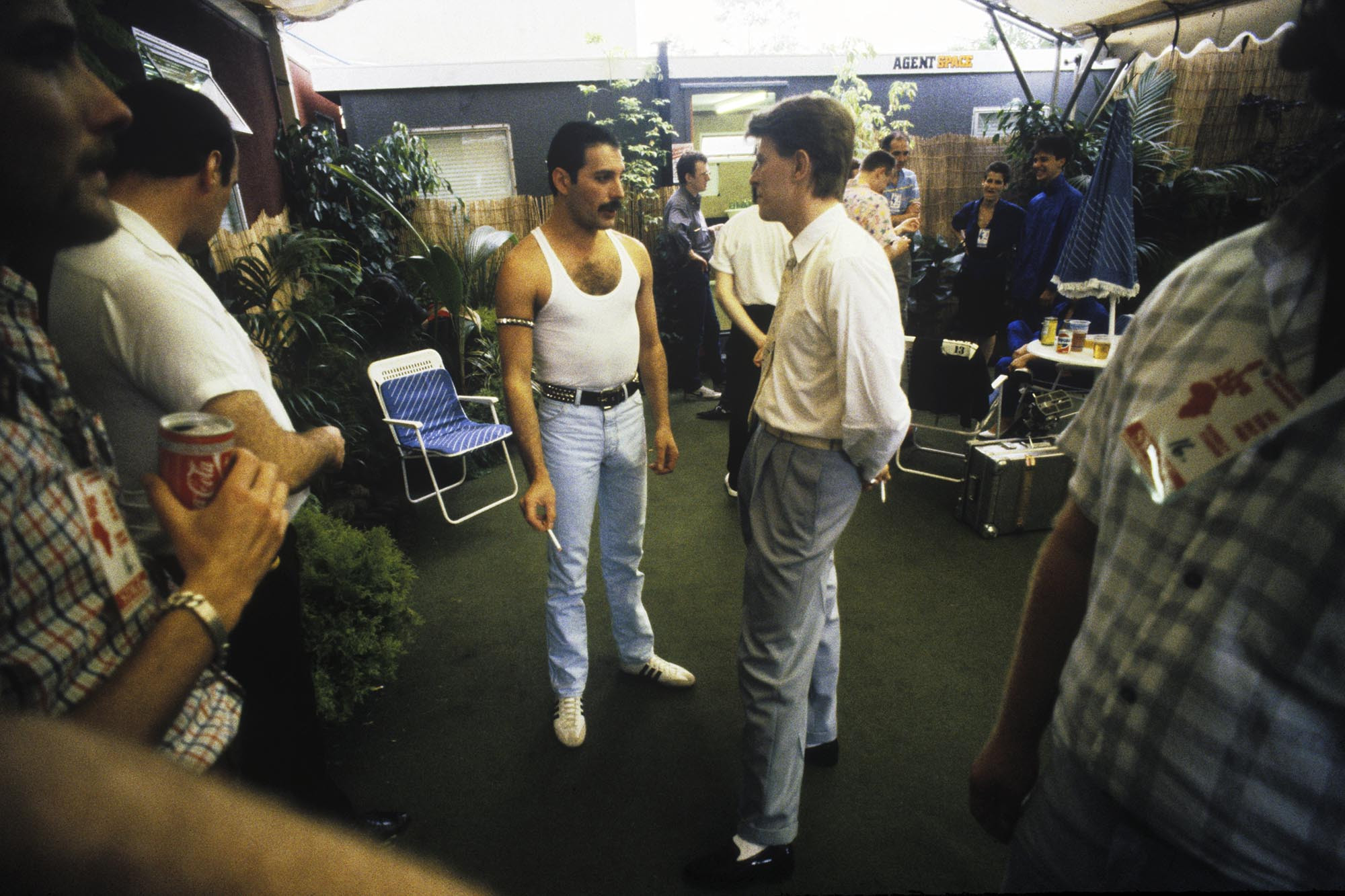 Freddie Mercury and David Bowie backstage at Live Aid, 1985, icons collaborating on Under Pressure in the 80s.
Freddie Mercury and David Bowie backstage at Live Aid, 1985, icons collaborating on Under Pressure in the 80s.
Freddie Mercury’s vocal prowess reaches new heights in “Under Pressure.” It’s fitting that Mercury pushes his vocal limits in a duet with another iconic performer, David Bowie. Instead of competing, they collaborate, creating a unique track unlike anything in either artist’s solo work. “Under Pressure,” with its distinctive bassline and powerful vocals, stands alone in their discographies. A heartwarming, though often overlooked, detail: Bowie had his hair styled at Live Aid by Freddie’s boyfriend, a quirky behind-the-scenes fact from this 80s super-collaboration.
Dexys Midnight Runners, ‘Come On Eileen’
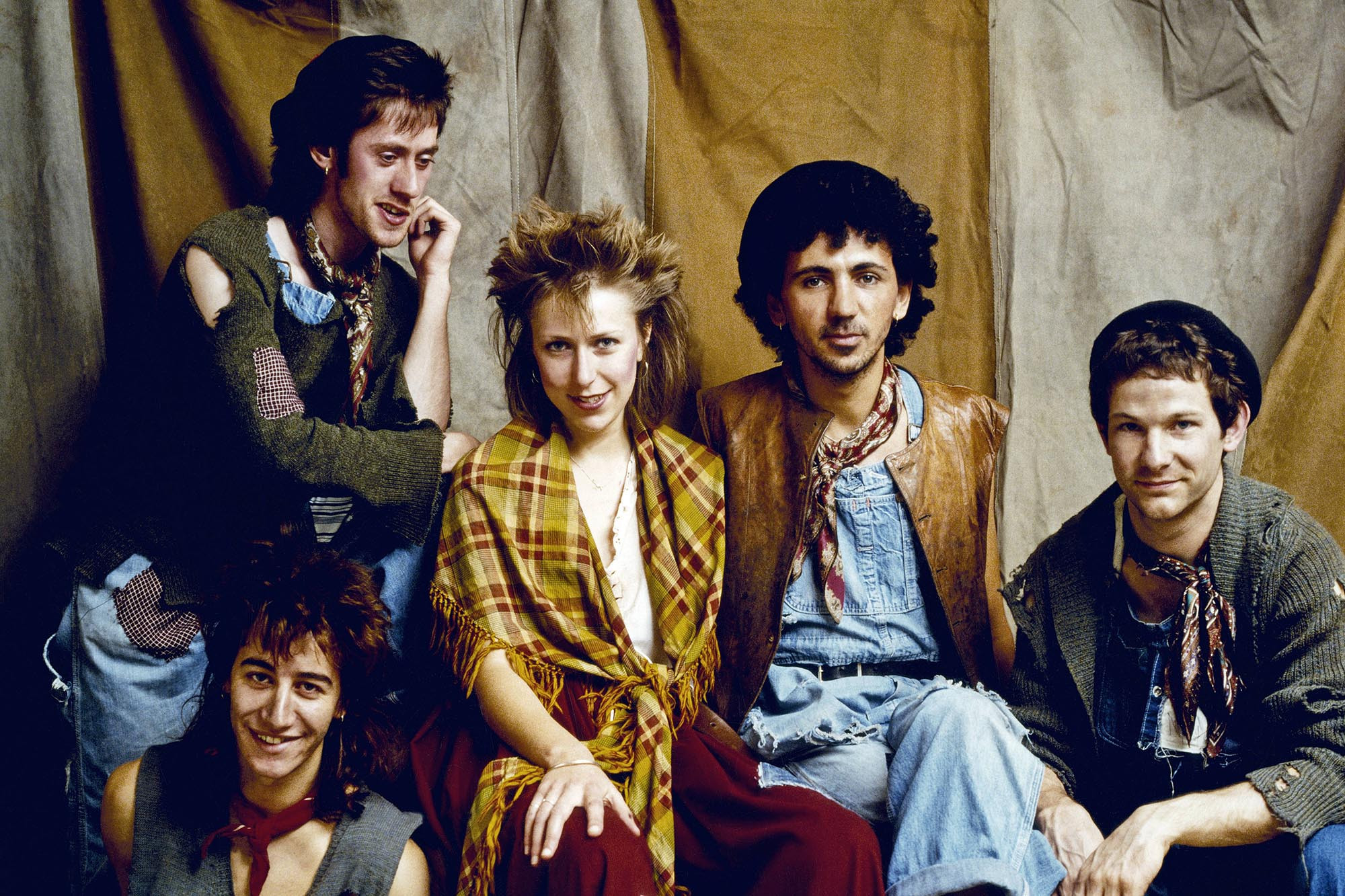 Dexys Midnight Runners, bringing Celtic influences to 80s pop with Come On Eileen.
Dexys Midnight Runners, bringing Celtic influences to 80s pop with Come On Eileen.
Kevin Rowland and Dexys Midnight Runners delivered “Come On Eileen,” a Celtsploitation hit with blazing Irish fiddles and “too-rye-aye” chants. They achieved one-hit-wonder status in the US with this track. The memorable line, “At this moment, you mean everything,” encapsulates the song’s romantic energy and its unique blend of pop and Celtic folk in the 80s.
Lionel Richie, ‘All Night Long (All Night)’
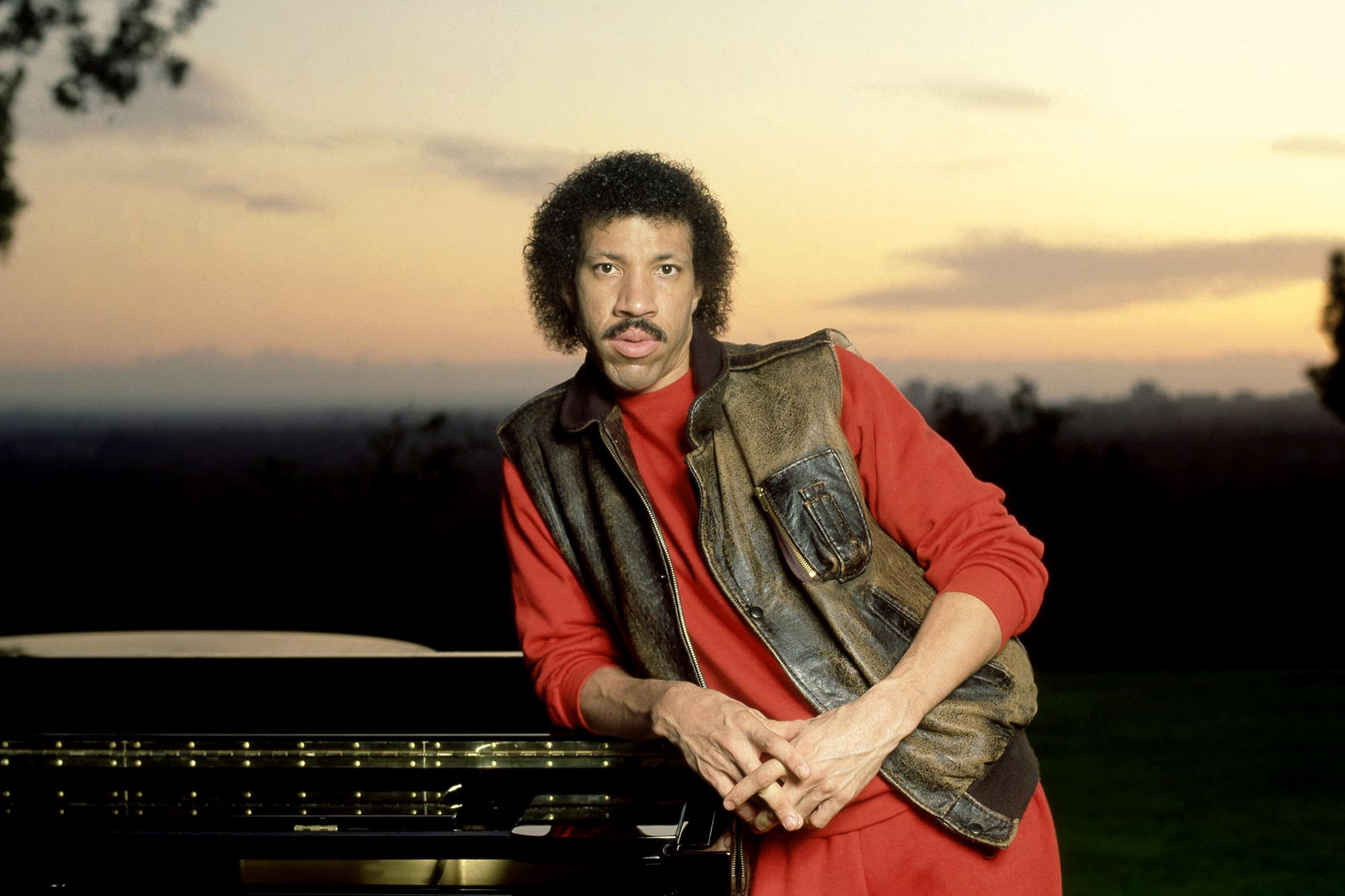 Lionel Richie, the king of smooth 80s ballads and feel-good anthems like All Night Long.
Lionel Richie, the king of smooth 80s ballads and feel-good anthems like All Night Long.
“That song has created more babies after the song,” Lionel Richie joked about “All Night Long (All Night)”. “We have populated the world.” This track embodies Lionel in his pastel-suited 80s era, dancing on the ceiling with a calypso-infused hit. His Jamaican accent, though exaggerated, adds to the song’s lighthearted, global party vibe. The made-up African chant, despite being gibberish, works perfectly. “All Night Long (All Night)” is pure 80s feel-good music, complete with one of the most unnecessary subtitles in parenthesis history.
The Stone Roses, ‘I Wanna Be Adored’
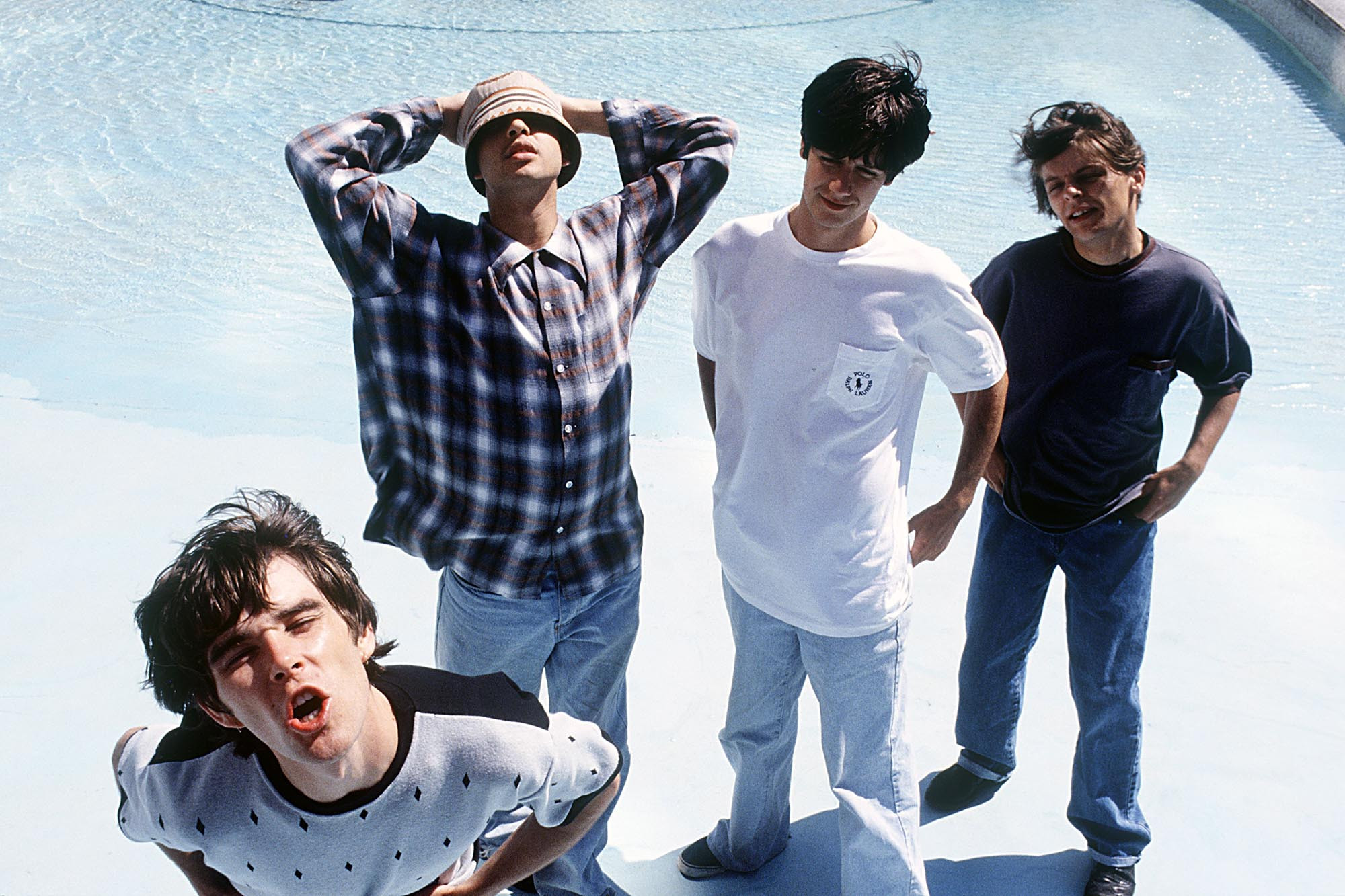 The Stone Roses in 1989, pioneers of Madchester and indie rock in late 80s music.
The Stone Roses in 1989, pioneers of Madchester and indie rock in late 80s music.
Manchester’s The Stone Roses deliver an unapologetic ego trip with “I Wanna Be Adored.” For them, drugs are overrated, but adoration is definitely underrated. This track, with its hypnotic groove and confident swagger, perfectly encapsulates the band’s early sound and the burgeoning Madchester scene in the late 80s.
New Kids on the Block, ‘Hangin’ Tough’
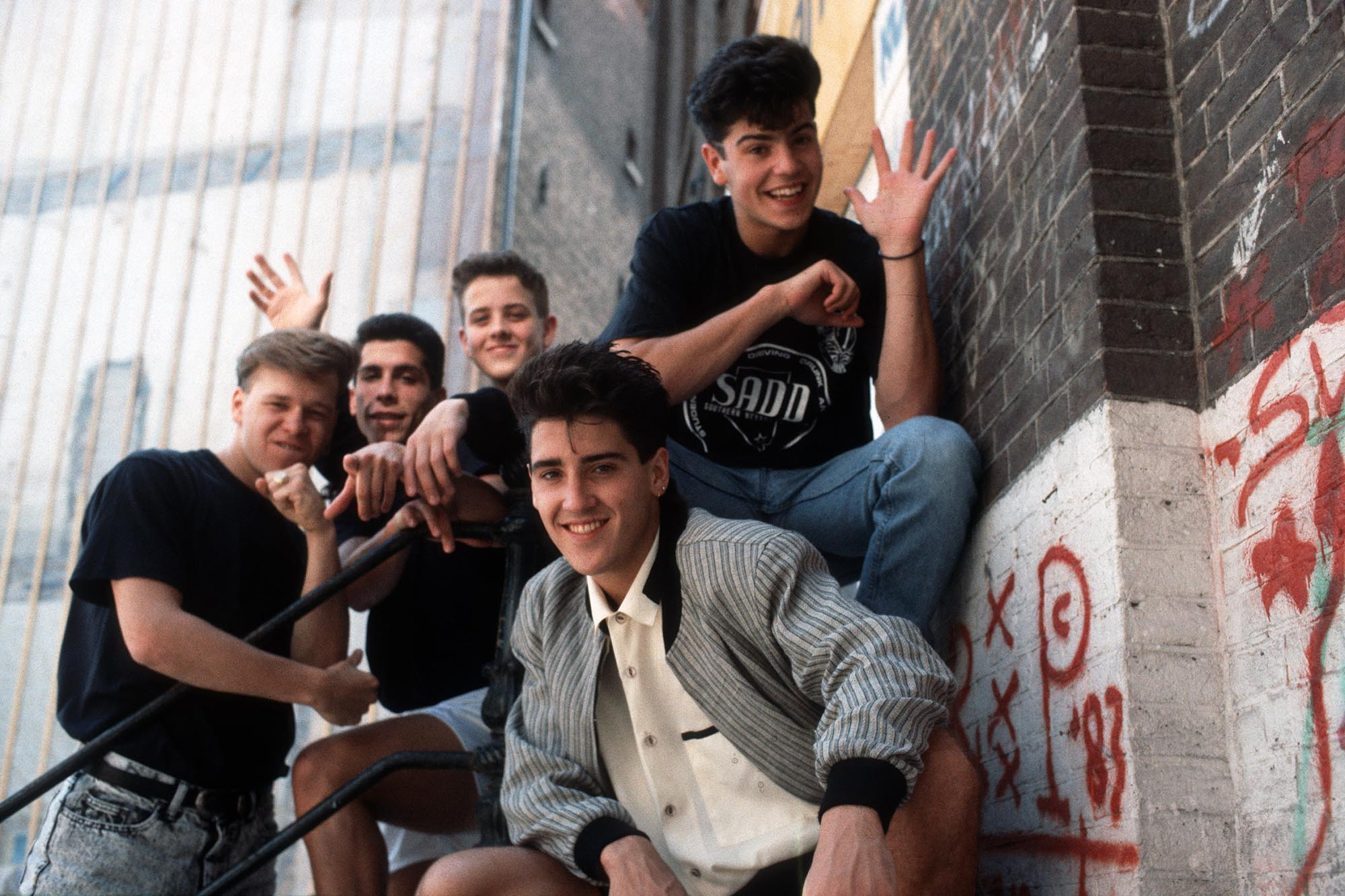 New Kids on the Block, the boy band phenomenon of the late 80s.
New Kids on the Block, the boy band phenomenon of the late 80s.
“Listen up everybody, if you wanna take a chance. Just get on the floor and do the New Kids dance.” Here’s to Joey, Jordan, Donnie, Jon, and Danny, the quintessential boy band, putting you in a trance with their funky sound. Chuck D surprisingly declared himself a New Kids fan, noting “they sincerely love hip-hop,” highlighting the wonderfully eclectic and surprising musical landscape of the late 80s.
Missing Persons, ‘Words’
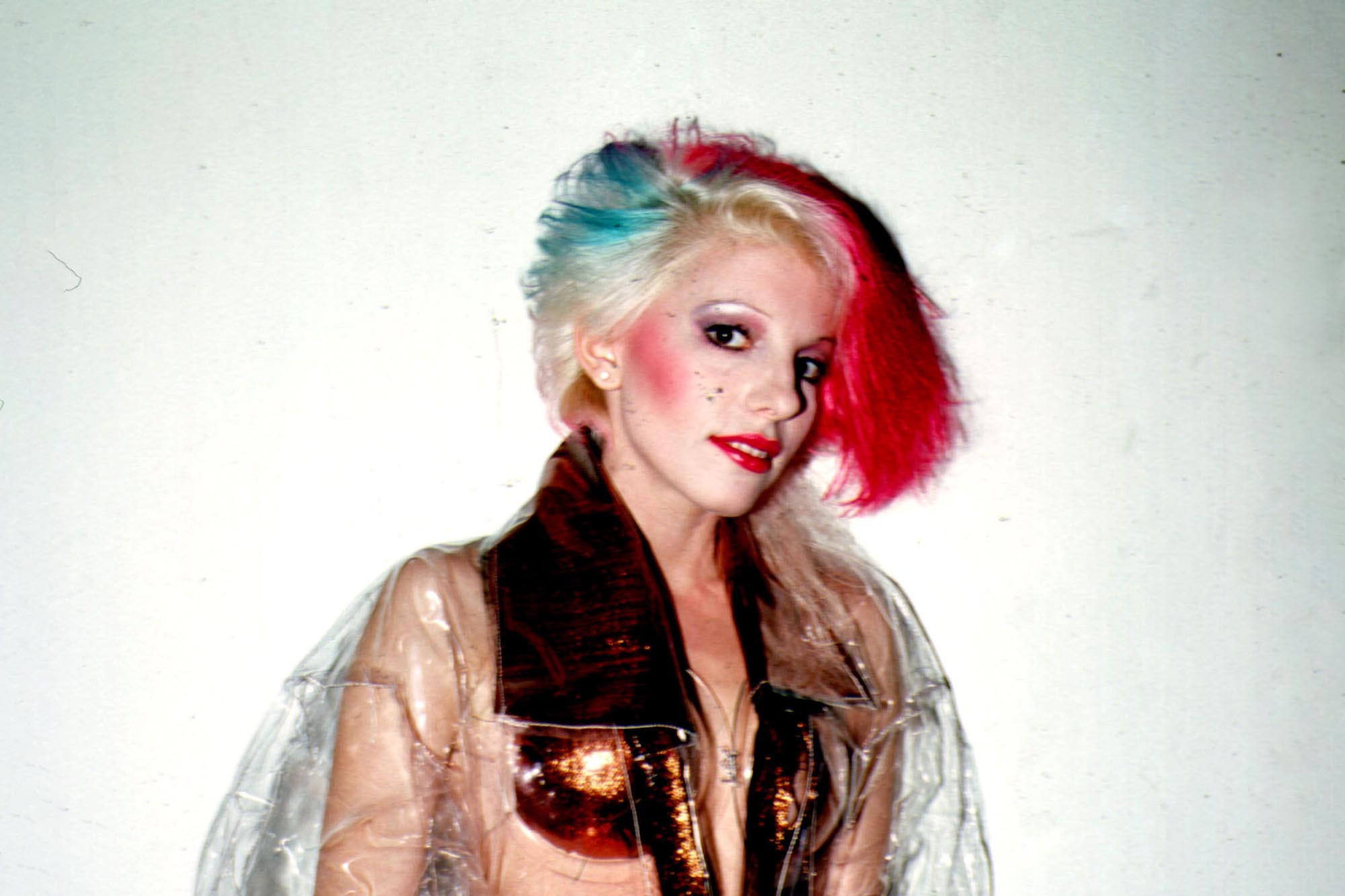 Dale Bozzio of Missing Persons, an icon of 80s new wave and visual performance.
Dale Bozzio of Missing Persons, an icon of 80s new wave and visual performance.
Teen angst, 80s style. When Dale Bozzio sang “No one notices/I think I’ll dye my hair blue” in “Words,” it resonated deeply with the feelings of teenage alienation. Missing Persons, with Bozzio’s unique vocals and stage presence, captured a specific brand of 80s new wave, blending theatricality with relatable teenage emotions.
Ratt, ‘Round and Round’
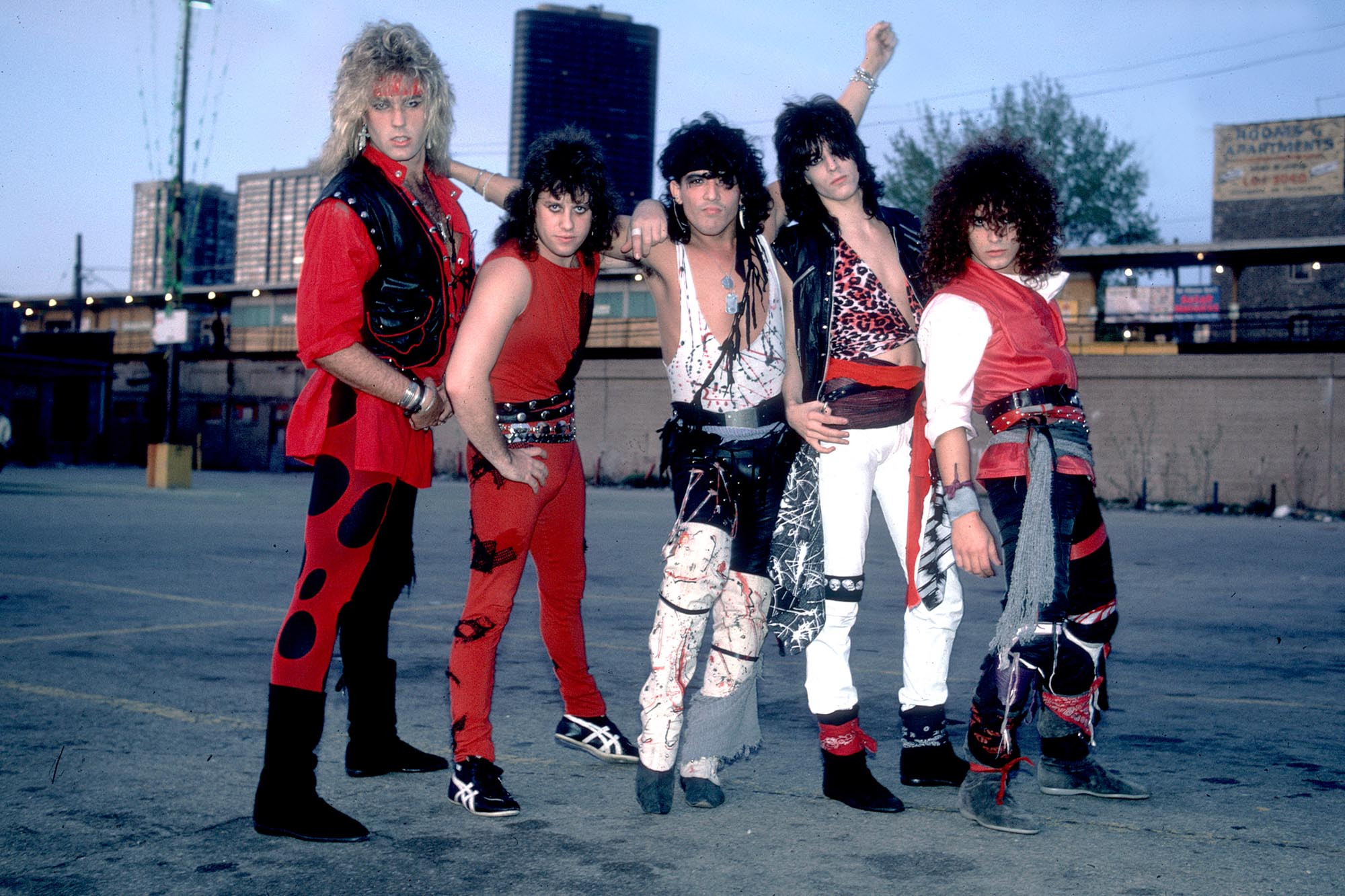 Ratt in Chicago, 1984, glam metal icons of the Sunset Strip scene in the 80s.
Ratt in Chicago, 1984, glam metal icons of the Sunset Strip scene in the 80s.
Ratt emerged from the Sunset Strip glam metal scene and quickly dominated with their 1984 summer hit “Round and Round.” Stephen Pearcy’s vocals, a blend of toughness and seduction, paired with neon-lit lyrics (“looking at you, looking at me” considered deep for 80s metal), and the echoing chorus created an instant classic. The song’s iconic video featuring comedy legend Milton Berle in drag and a party guest spontaneously undressing cemented its place in 80s pop culture. And let’s not forget the Shakespearean (though loosely interpreted) reference: “Like Romeo to Juliet, time and time, I’m gonna make you mine.” Pure 80s glam metal at its finest.
The English Beat, ‘Twist and Crawl’
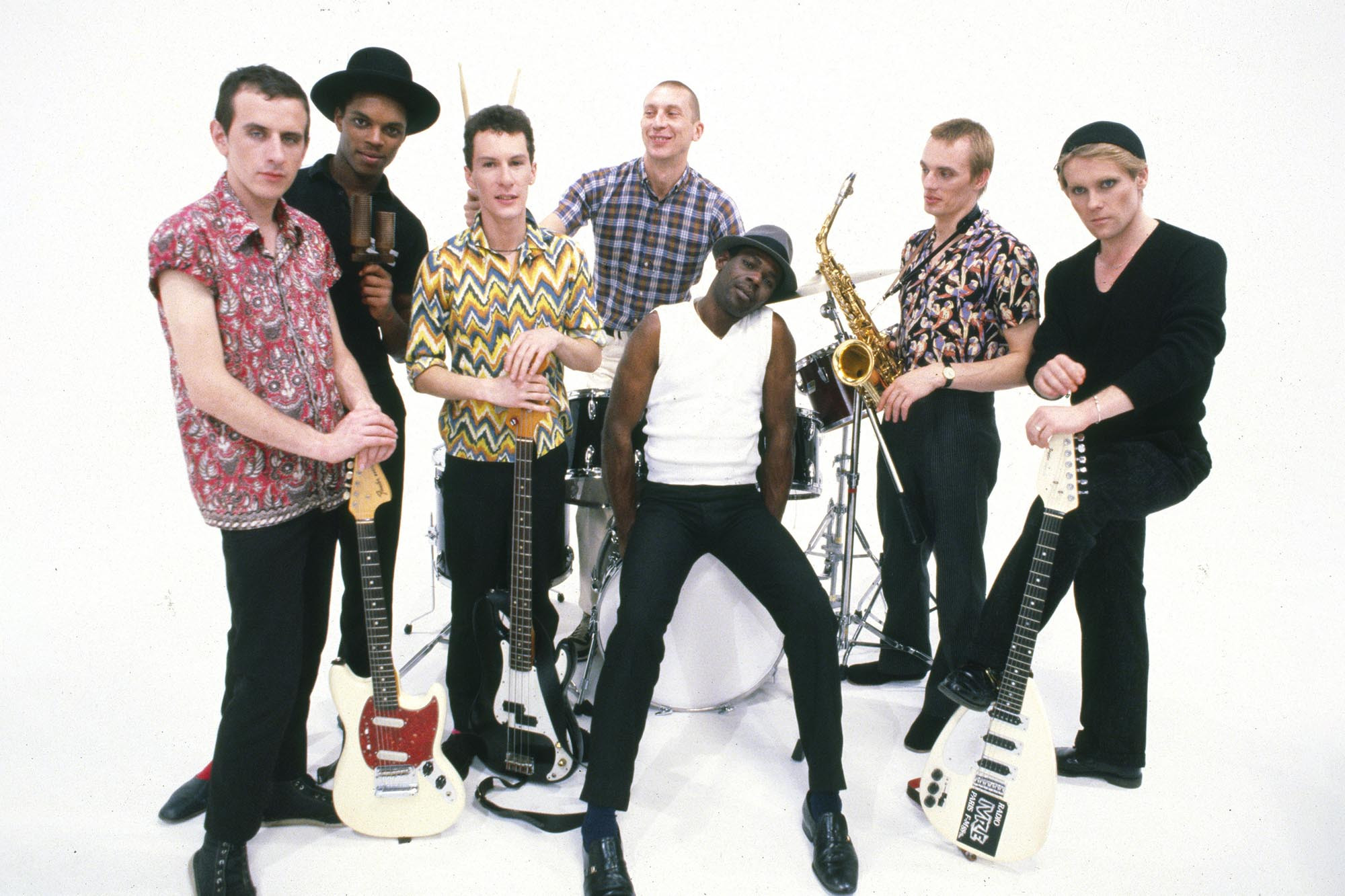 The English Beat in 1982, blending ska, new wave, and social commentary in 80s music.
The English Beat in 1982, blending ska, new wave, and social commentary in 80s music.
“Twist and Crawl” by The English Beat boasts one of the slinkiest basslines of the decade. This multiracial ska band from Birmingham, England, challenged racism through their music and herky-jerky rhythms. Their Go Feet record label graphics, featuring dancing girls, were a deliberate statement of anti-misogyny. “We thought it would be nice to be a dance band,” Dave Wakeling told Rolling Stone in 1980. “We just want to survive World War III by trying to find a place where the bombs might miss.” The English Beat brought a socially conscious dance vibe to 80s new wave and ska.
L’Trimm, ‘Cars With the Boom’
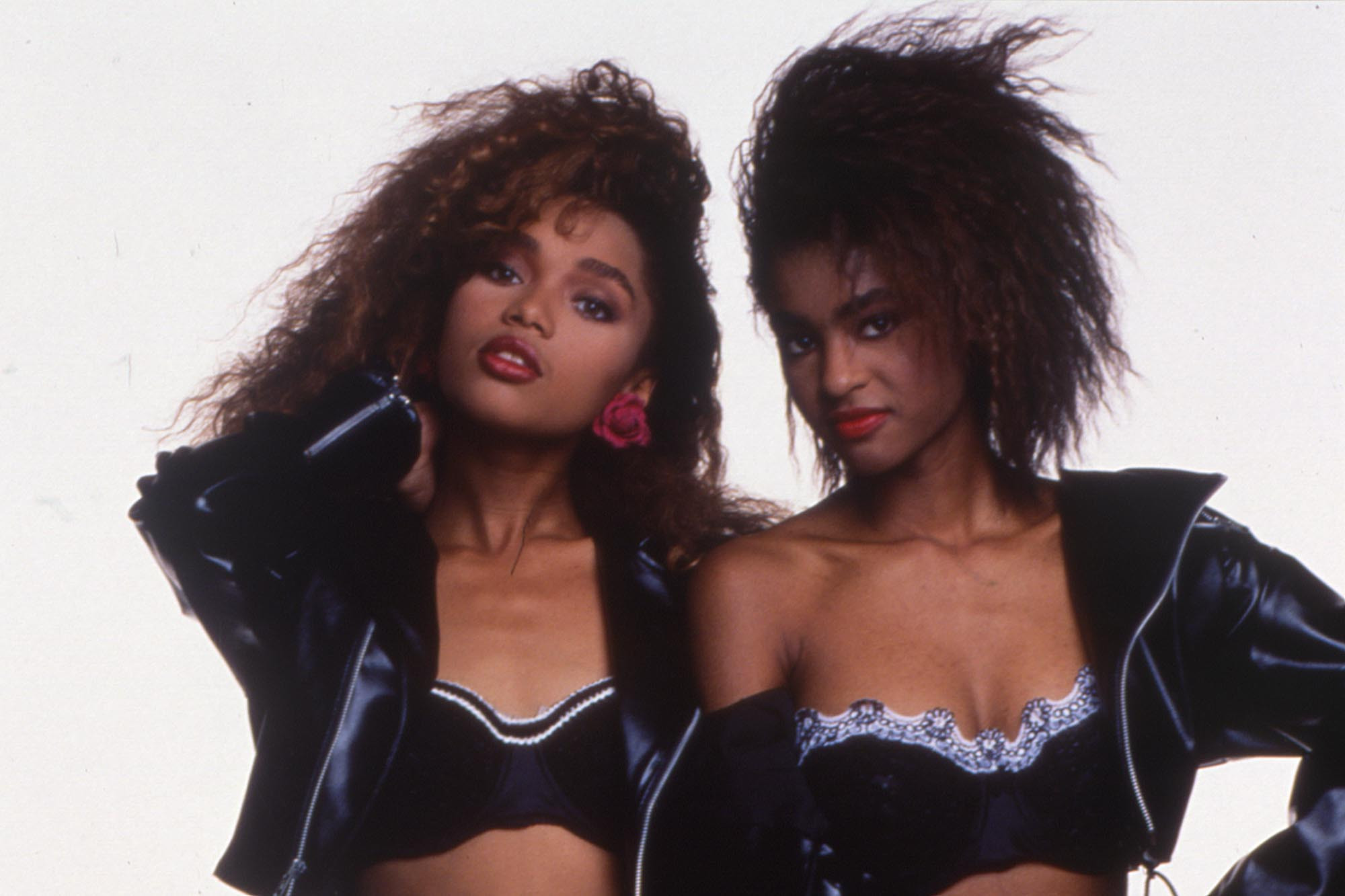 L'Trimm in 1991, pioneers of Miami bass and female rap duos in 80s hip-hop.
L'Trimm in 1991, pioneers of Miami bass and female rap duos in 80s hip-hop.
Psych! You thought you were just driving a car, but it’s actually a mobile boombox for teenage duo Tigra and Bunny to unleash Miami bass mayhem. L’Trimm’s “Cars With the Boom” is pure Miami bass energy. “Everybody beep your horns if you hear us! Beep louder!” the girls command, turning everyday commutes into guerilla sound system attacks. It’s a defining track of 80s Miami bass and female rap.
Modern English, ‘I Melt With You’
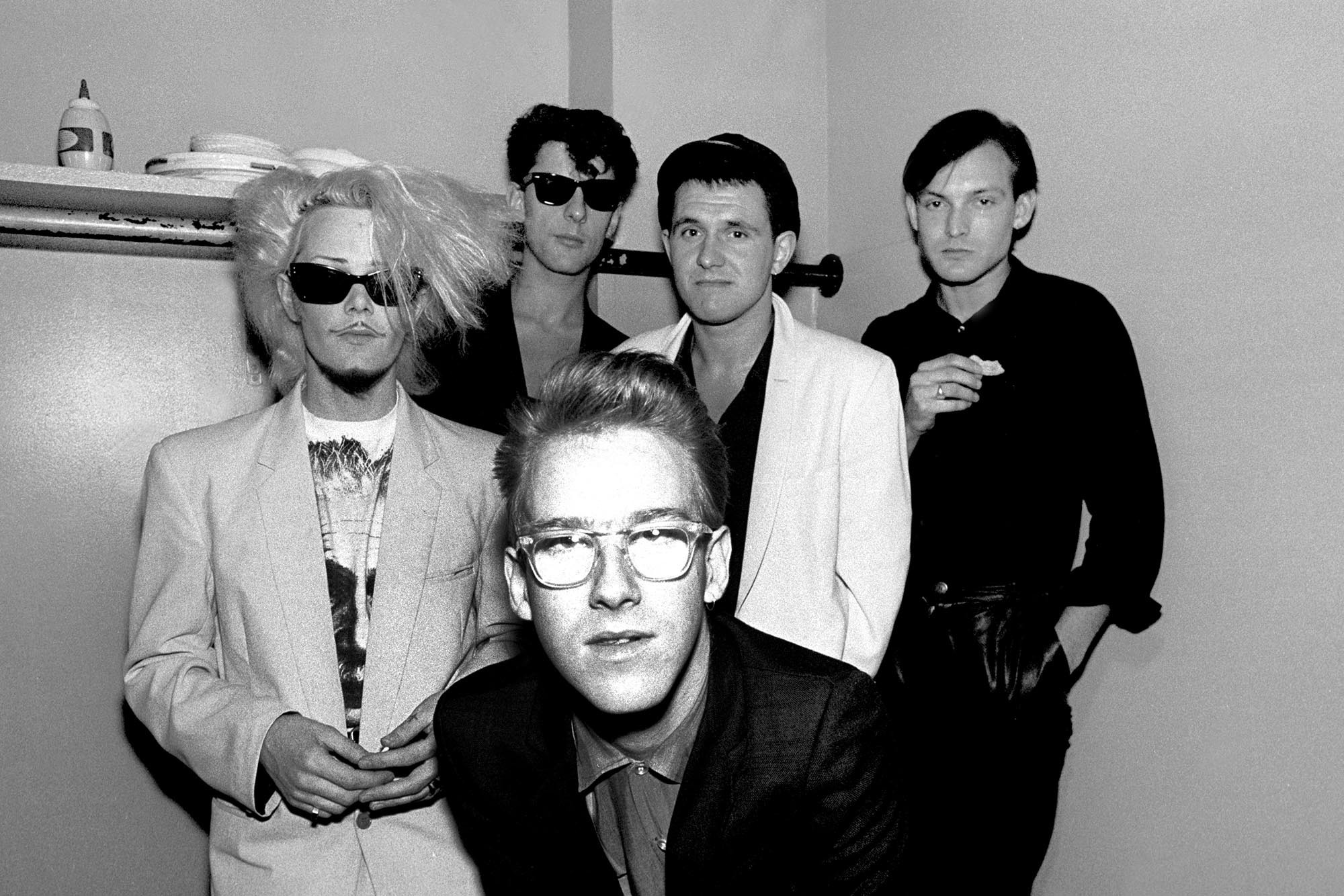 Modern English backstage in Chicago, 1983, creators of the new wave anthem I Melt With You.
Modern English backstage in Chicago, 1983, creators of the new wave anthem I Melt With You.
“I Melt With You” by Modern English features perhaps the greatest humming solo ever recorded. Singer Robbie Grey explained, “It was about a couple making love as the bomb dropped.” The song’s sudden musical pause leading into that “hmm-hmm-hmm” climax creates a moment of suspended anticipation. When Robbie sings “Making love to you was never second best,” it’s meant to be the ultimate compliment, set against an apocalyptic backdrop, making “I Melt With You” a uniquely poignant 80s new wave anthem.
Billy Idol, ‘White Wedding’
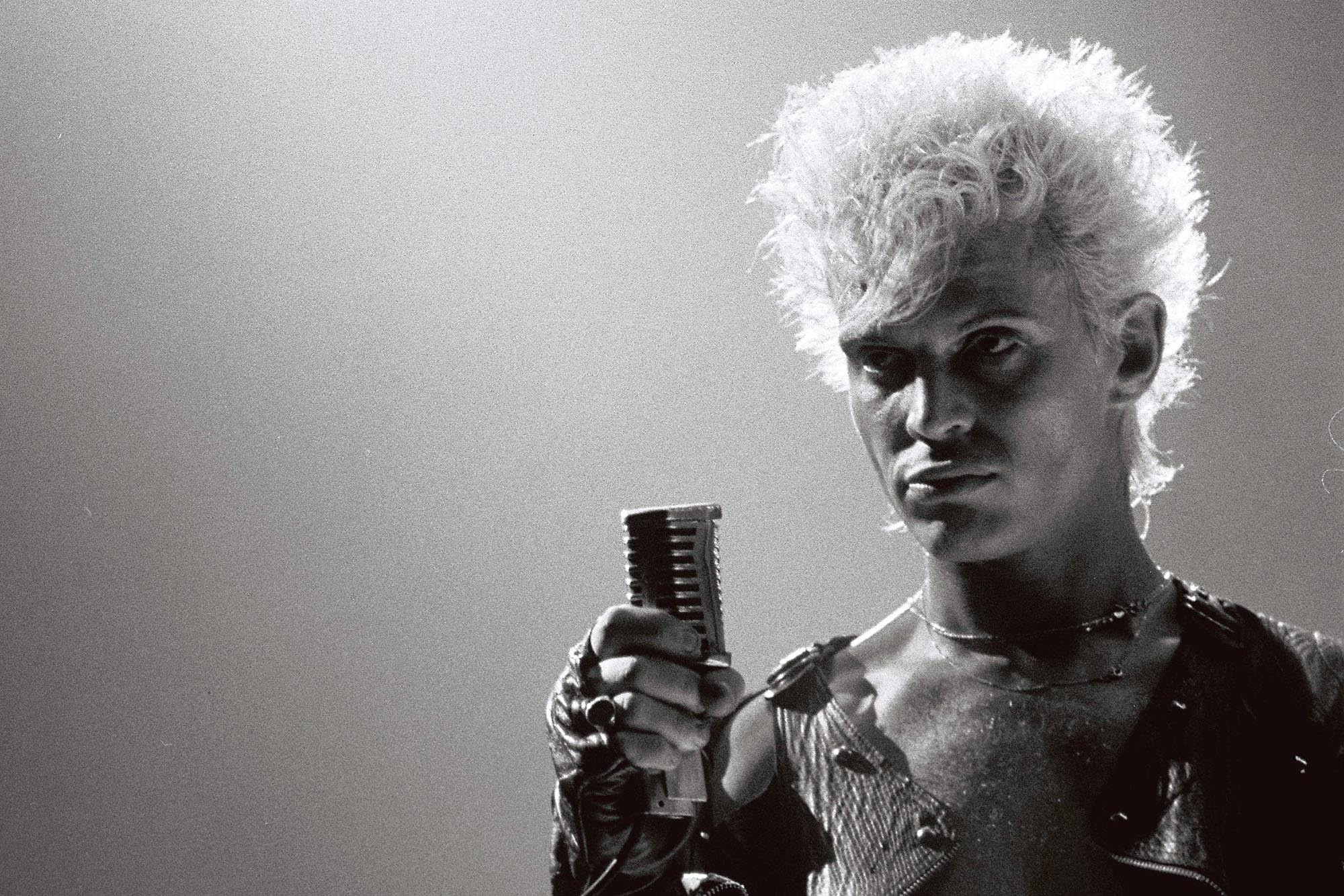 Billy Idol in London, 1982, the rock and roll rebel of 80s MTV generation.
Billy Idol in London, 1982, the rock and roll rebel of 80s MTV generation.
Billy Idol unleashes his raw energy in “White Wedding,” a rebel yell against sex, religion, and societal norms. This summer of ’82 hit established Idol as a leading rock and roll personality of the 80s MTV generation. With its driving beat, iconic video, and Idol’s sneering delivery, “White Wedding” is a quintessential 80s rock anthem.
Peech Boys, ‘Don’t Make Me Wait’
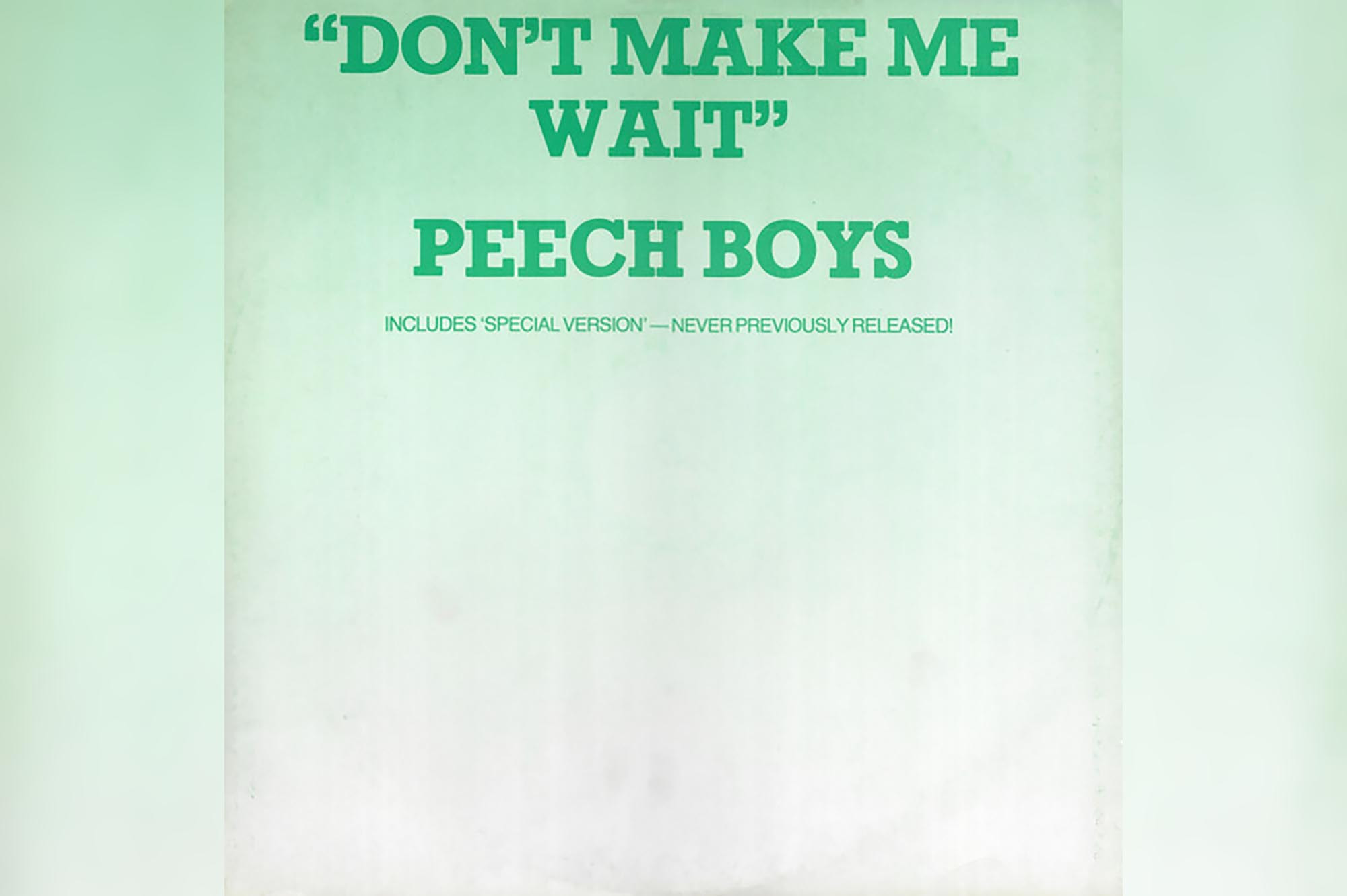 Peech Boys, pioneers of house music and the Paradise Garage sound in the 80s.
Peech Boys, pioneers of house music and the Paradise Garage sound in the 80s.
Larry Levan, legendary DJ at the Paradise Garage, shaped dance music history. The Garage, famous for its after-hours parties, even inspired record stores to open early on Sundays to cater to DJs seeking Levan’s latest tracks. The club’s signature drink, fruit punch spiked with acid, inspired the name Peech Boys. Levan’s vision is fully realized in “Don’t Make Me Wait,” evoking a city awakening at night, ready to party. It’s a foundational track in 80s house music and the Paradise Garage sound.
The Dream Syndicate, ‘Open Hour’
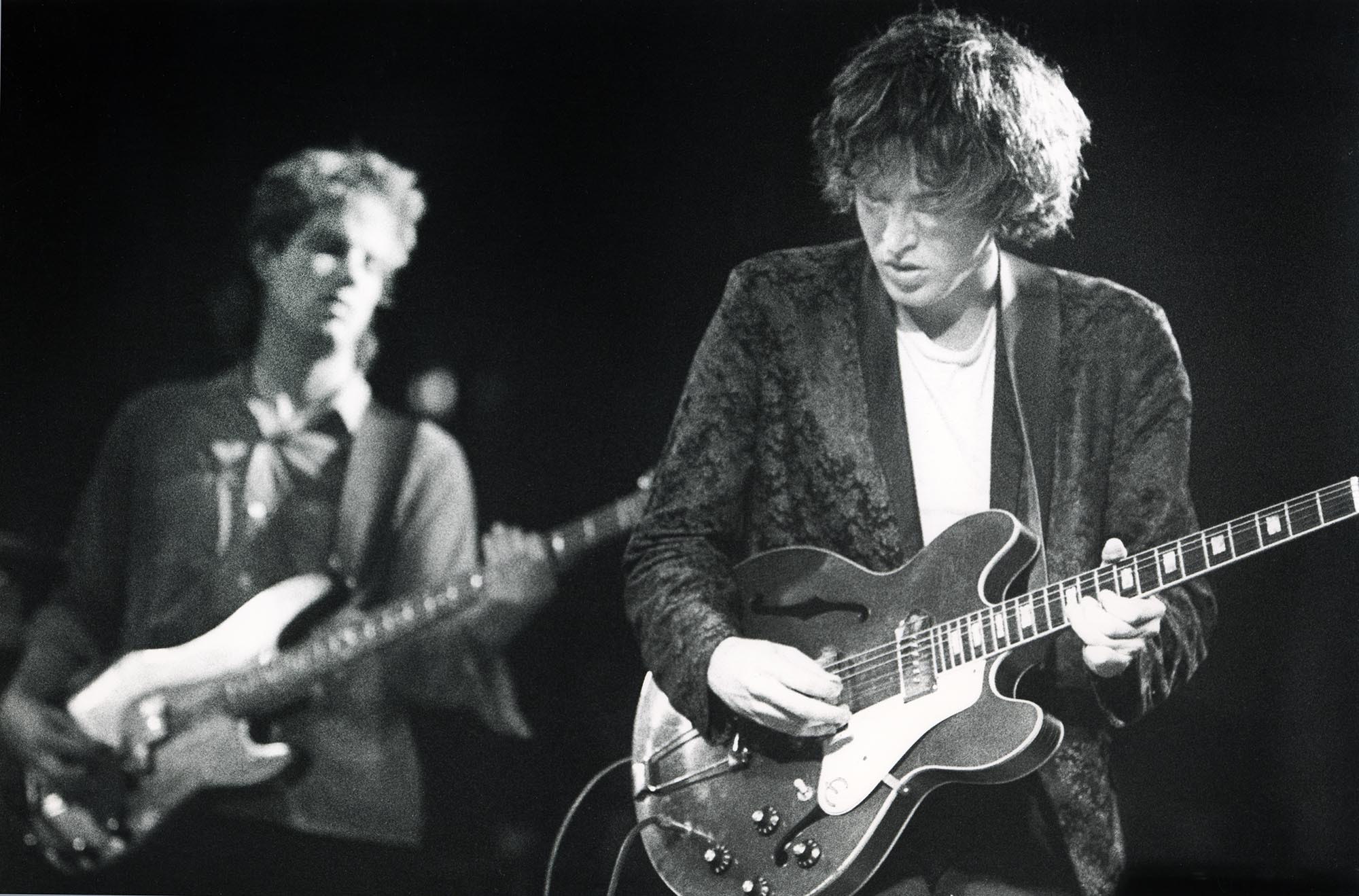 The Dream Syndicate, Paisley Underground pioneers blending psychedelia and punk in 80s music.
The Dream Syndicate, Paisley Underground pioneers blending psychedelia and punk in 80s music.
The Dream Syndicate, from LA’s Paisley Underground scene, specialized in psychedelic guitar jams. Their album The Days of Wine and Roses is an 80s landmark, influencing bands from Dinosaur Jr. to Japandroids. “Open Hour” is their epic jam, comparable to the Velvet Underground’s “Sister Ray” or Television’s “Marquee Moon.” Originally a live improvisation, later recorded as “John Coltrane Stereo Blues,” it’s best captured in this KPFK radio jam, showcasing Karl Precoda and Steve Wynn’s guitar interplay over a driving groove. Eight minutes of guitars doing exactly what they were made to do in 80s psychedelic rock.
Linton Kwesi Johnson, ‘Inglan Is a Bitch’
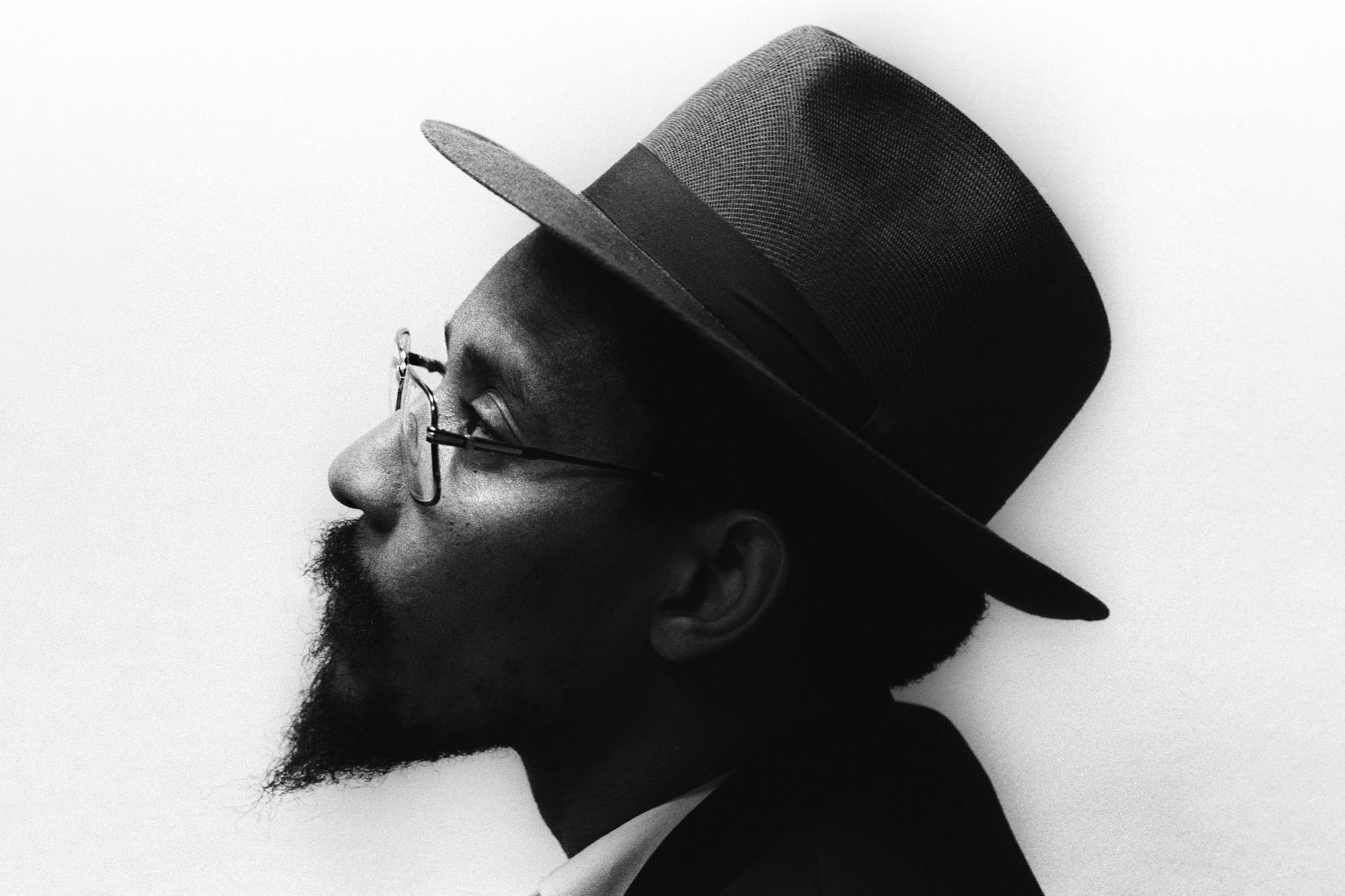 Linton Kwesi Johnson, the dub poet bringing political reggae to 80s music.
Linton Kwesi Johnson, the dub poet bringing political reggae to 80s music.
Jamaican-born English dub poet Linton Kwesi Johnson created politically charged reggae albums, delivering protest verse in patois. In “Inglan Is a Bitch,” from his powerful 1980 LP Bass Culture, LKJ reports on the harsh realities faced by Afro-Caribbean immigrants in London. It’s a stark and vital piece of 80s reggae, addressing social injustice with poetic force.
Dominatrix, ‘The Dominatrix Sleeps Tonight’
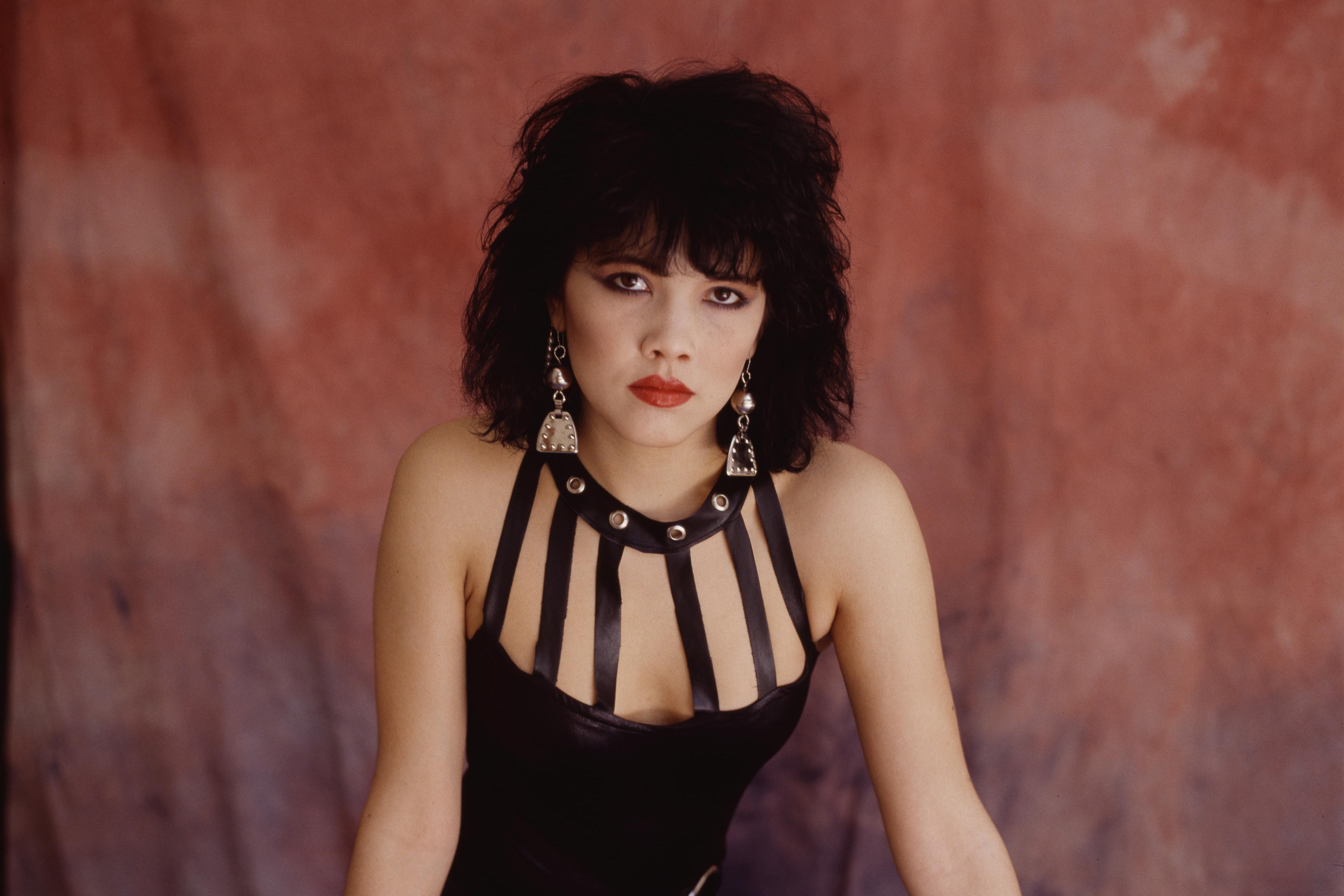 Dominatrix, the mysterious synth-pop act of the 80s New York club scene.
Dominatrix, the mysterious synth-pop act of the 80s New York club scene.
“The Dominatrix Sleeps Tonight” was a mysterious NYC club hit, shrouded in anonymity. Whips cracking, drum machines, and bubbling synths create a kinky, robotic soundscape. The narrator, a robot-sex priestess, delivers lines with icy detachment: “That night, a wild party/Women beat their men/Animals watch beyond the fire/The dominatrix … sleeps … tonight!” It’s a unique and provocative track from the 80s New York underground club scene.

